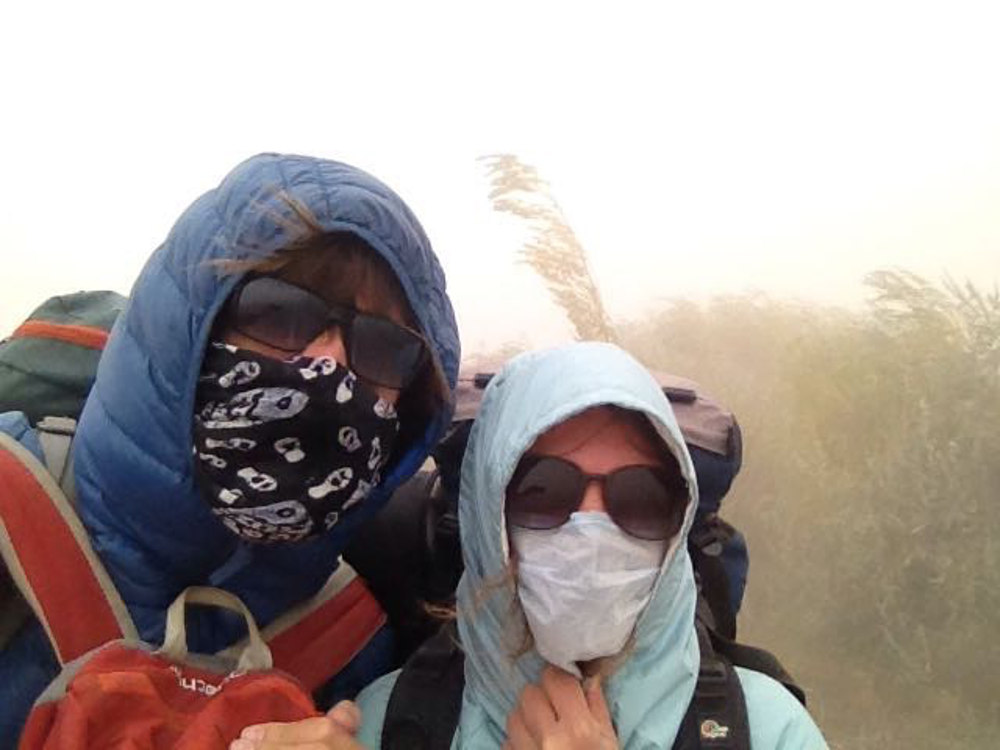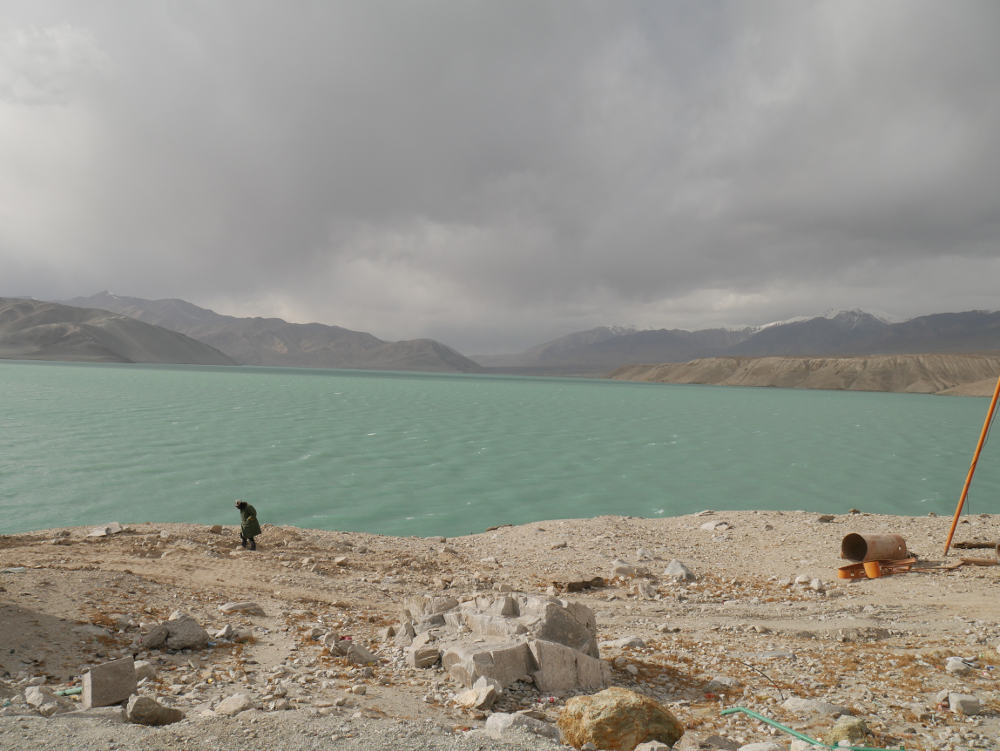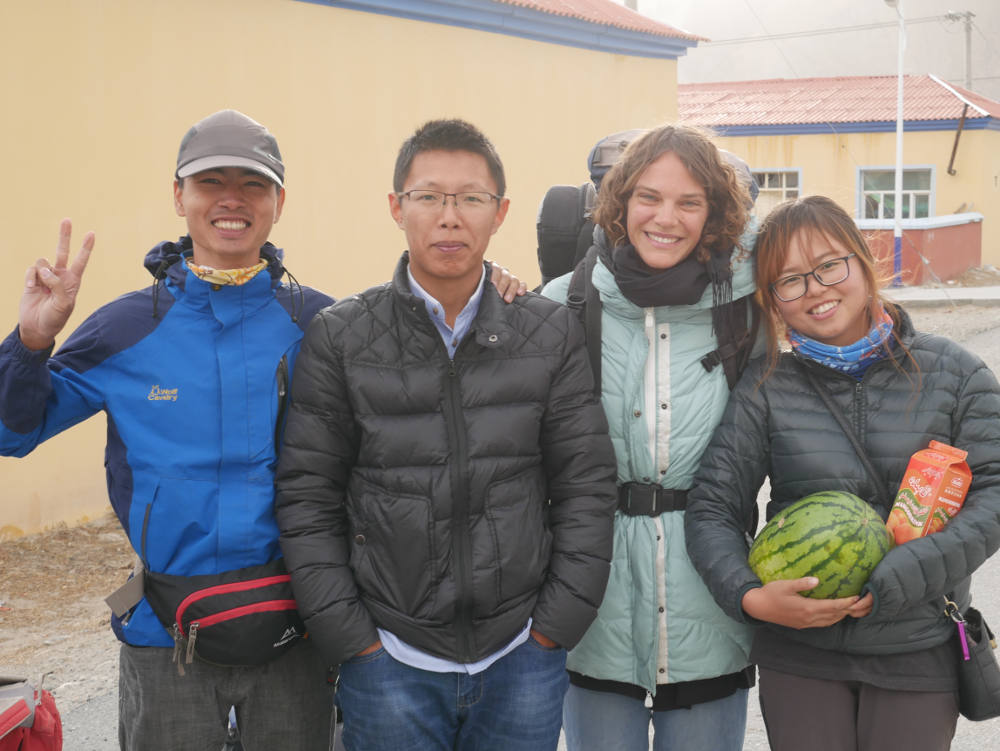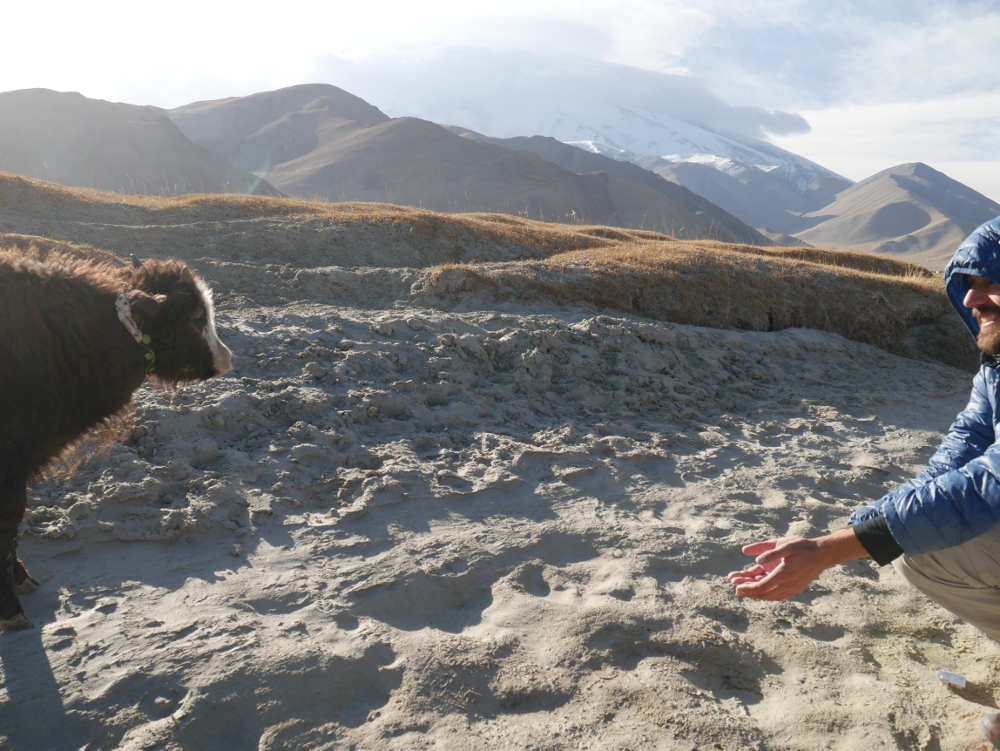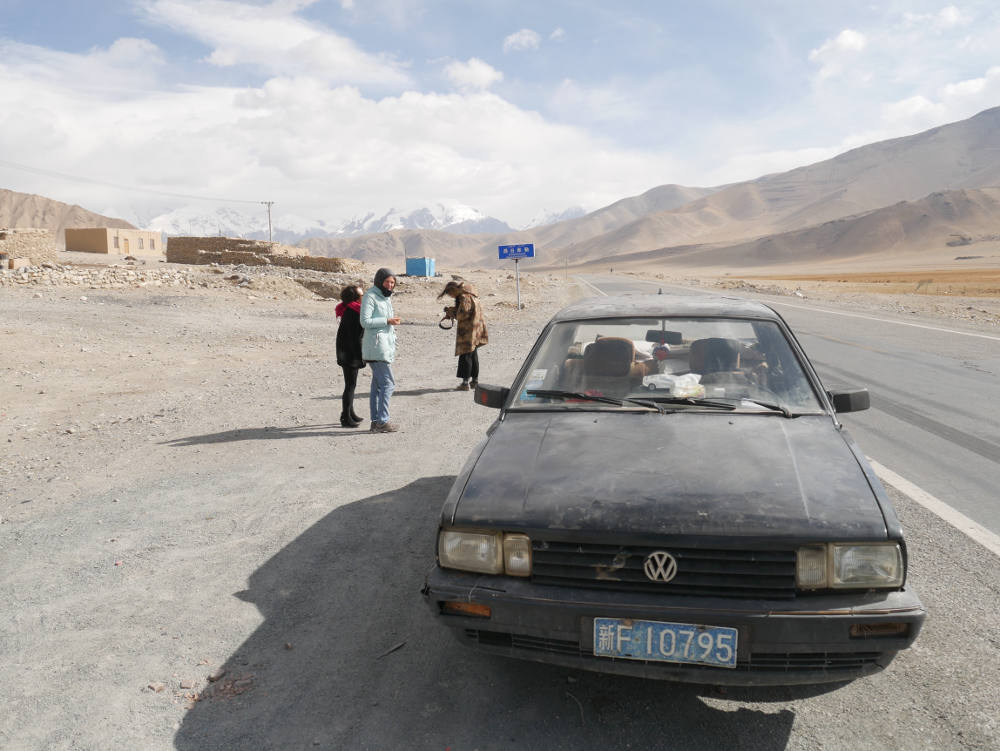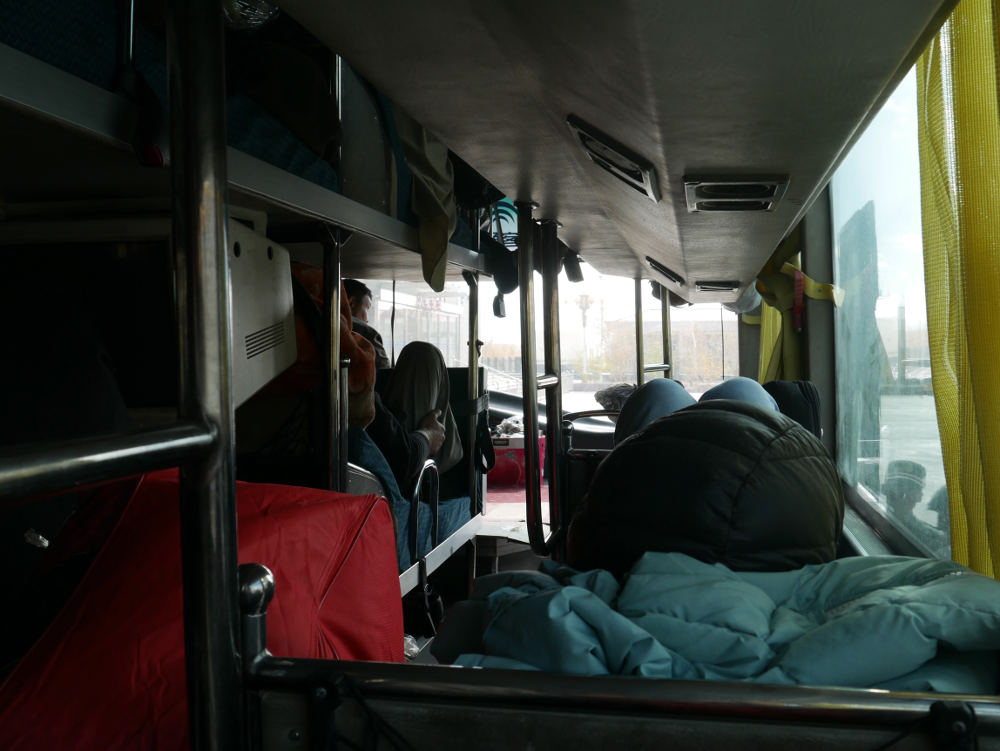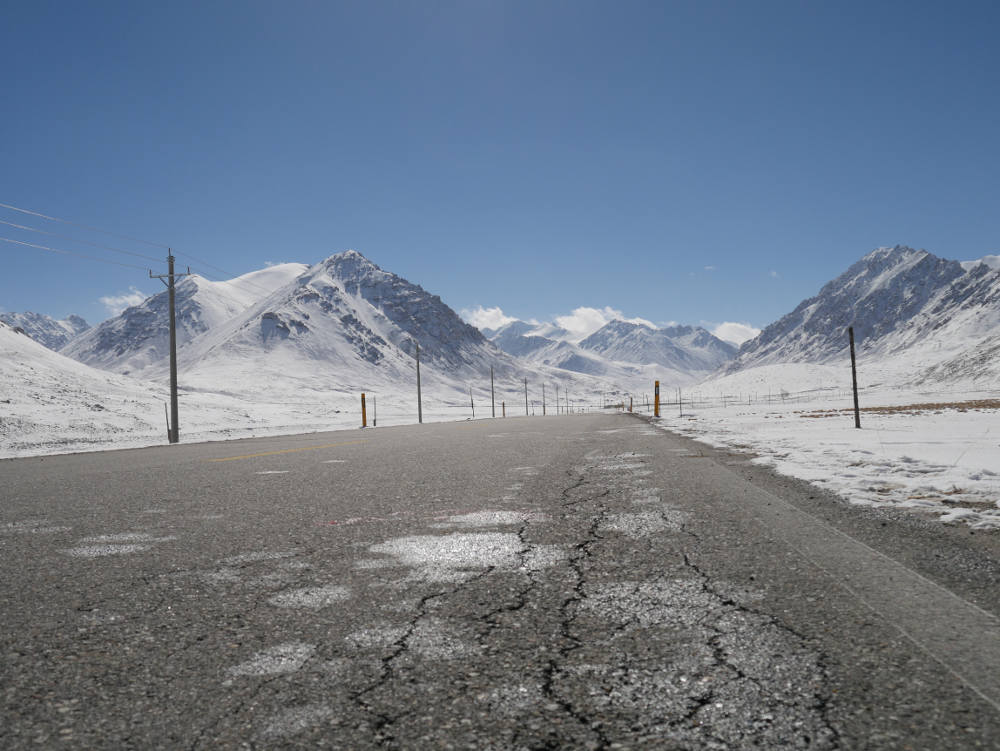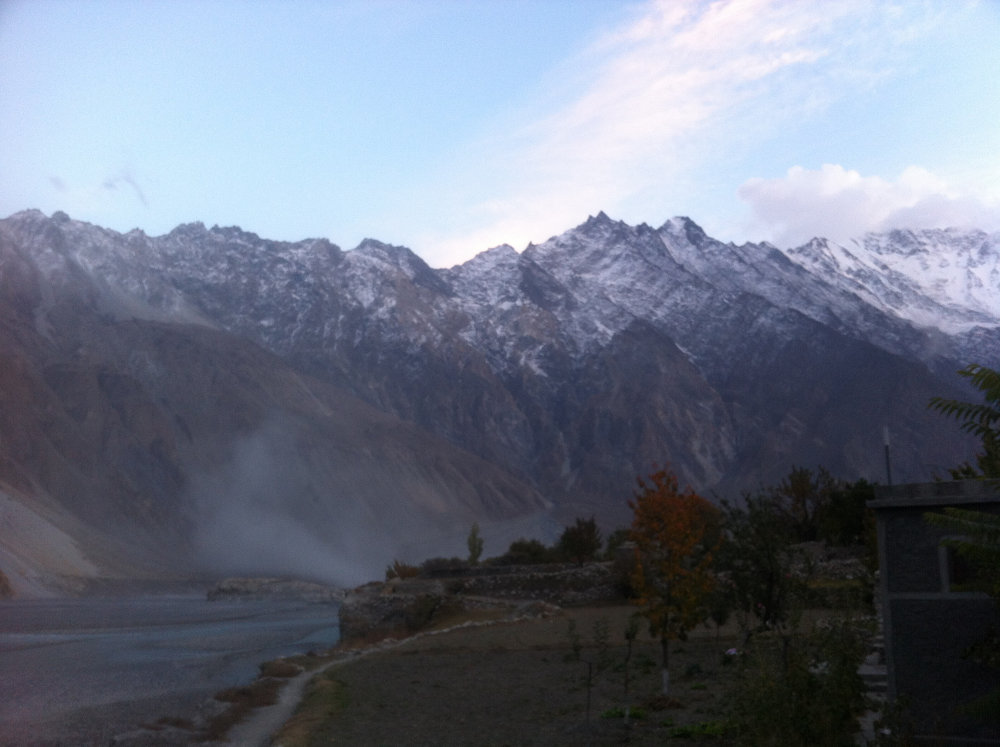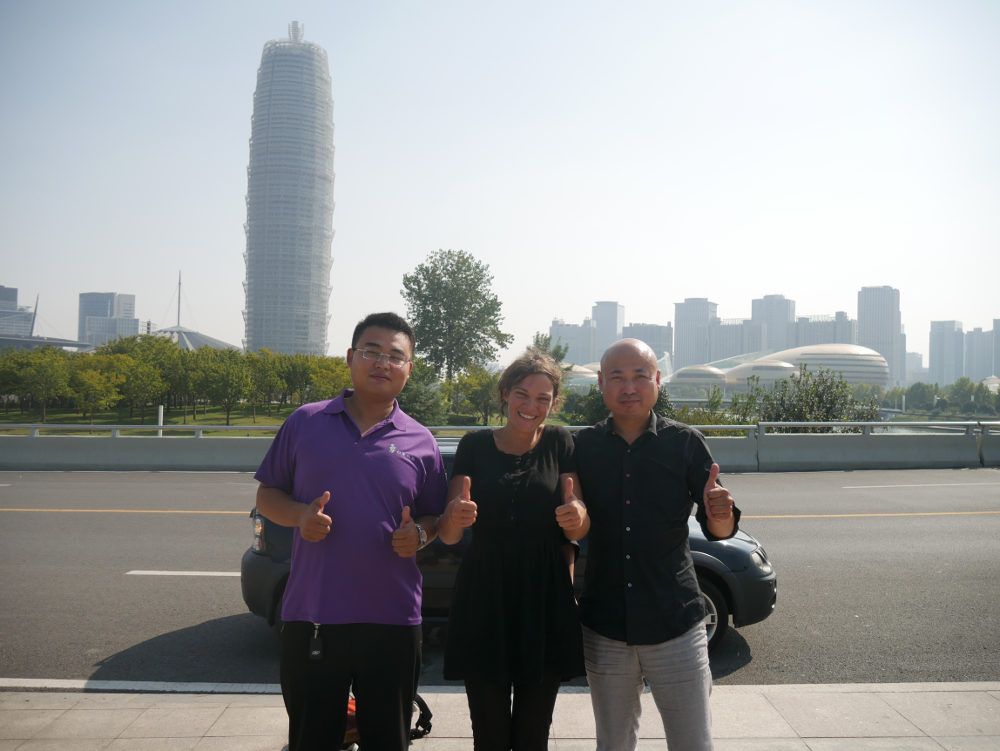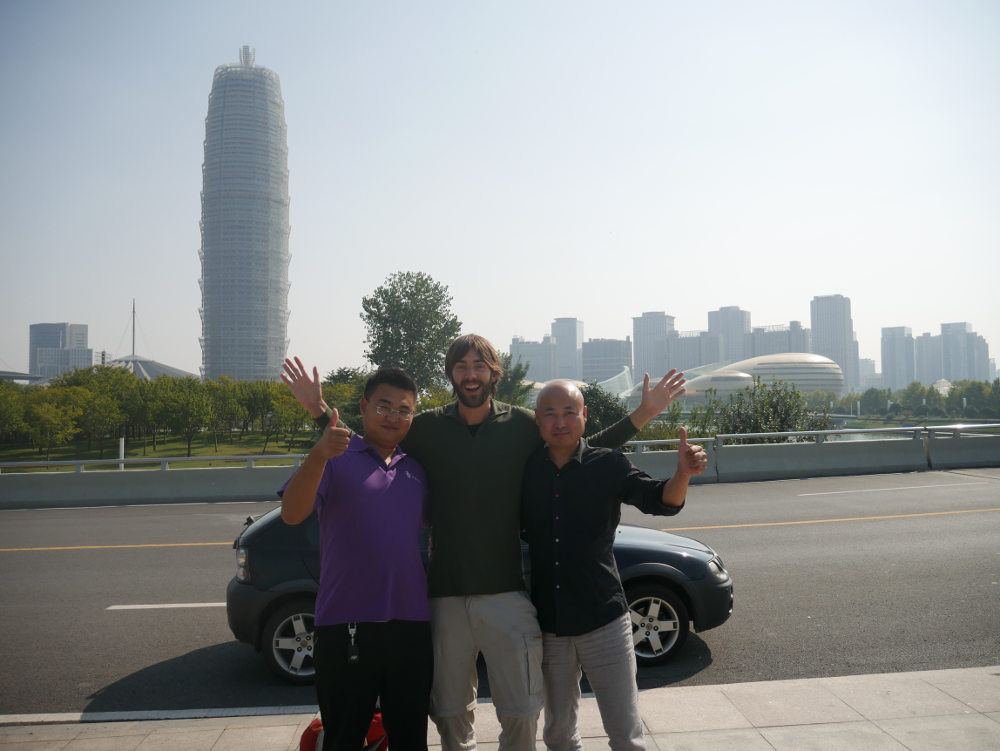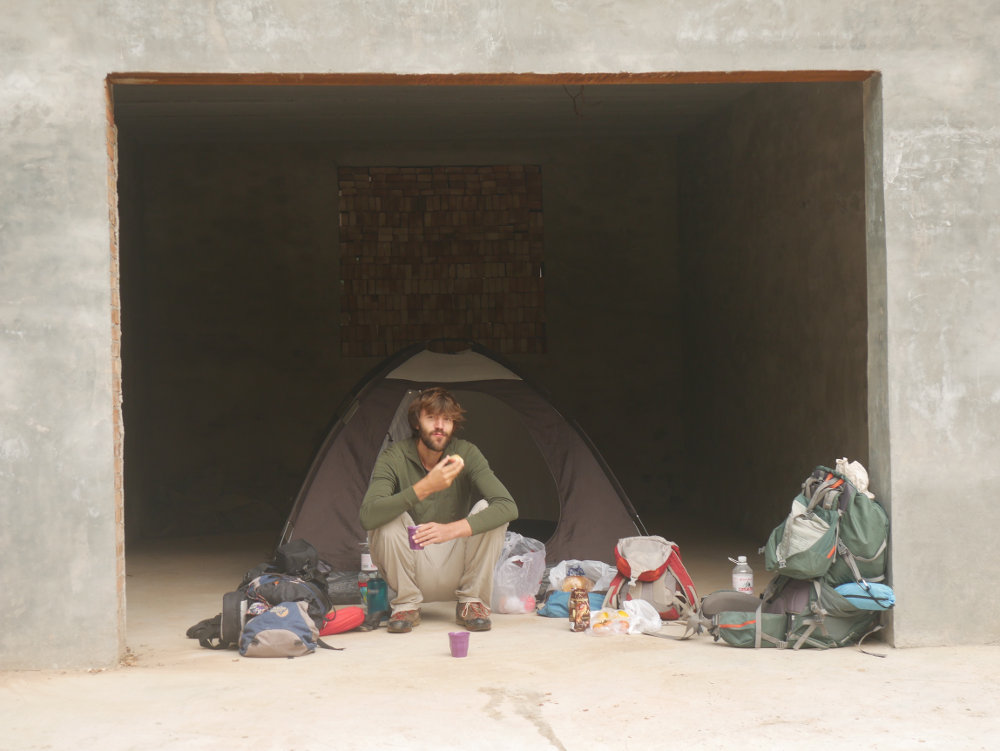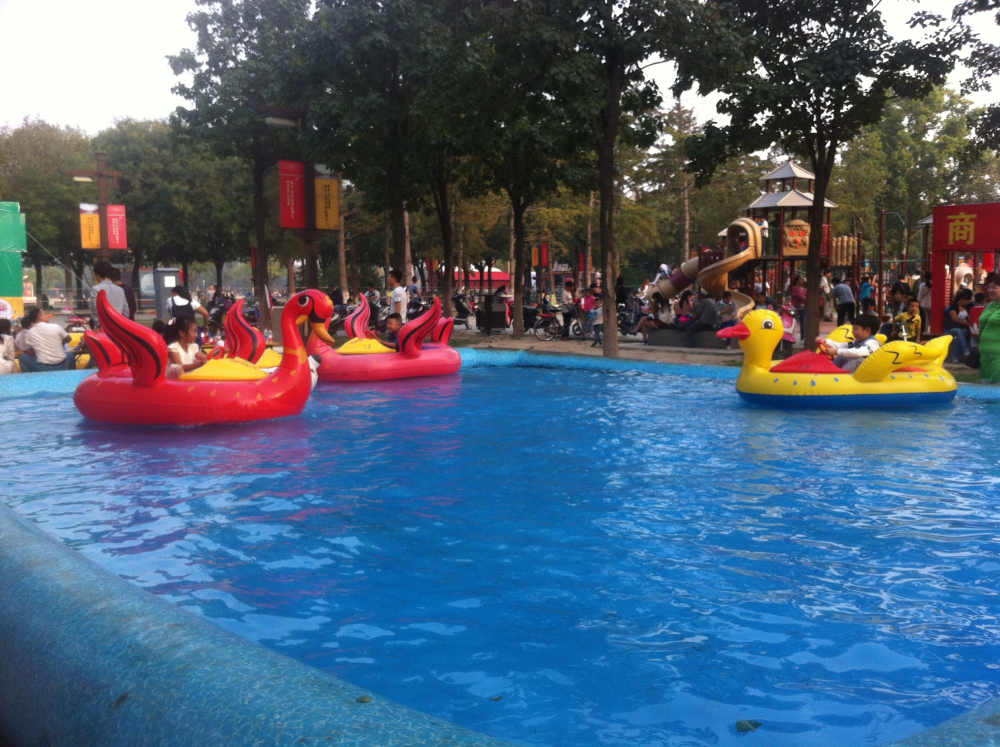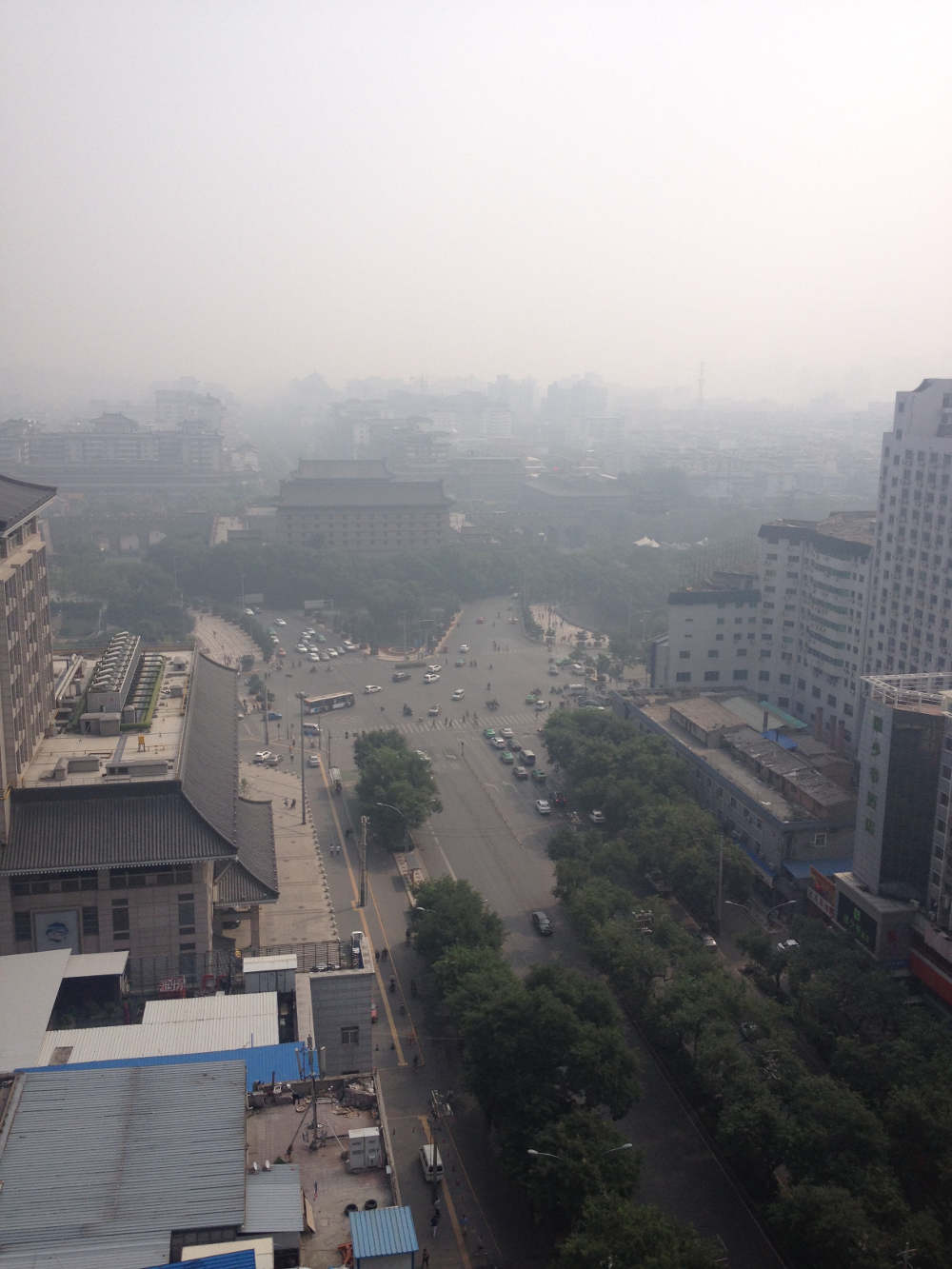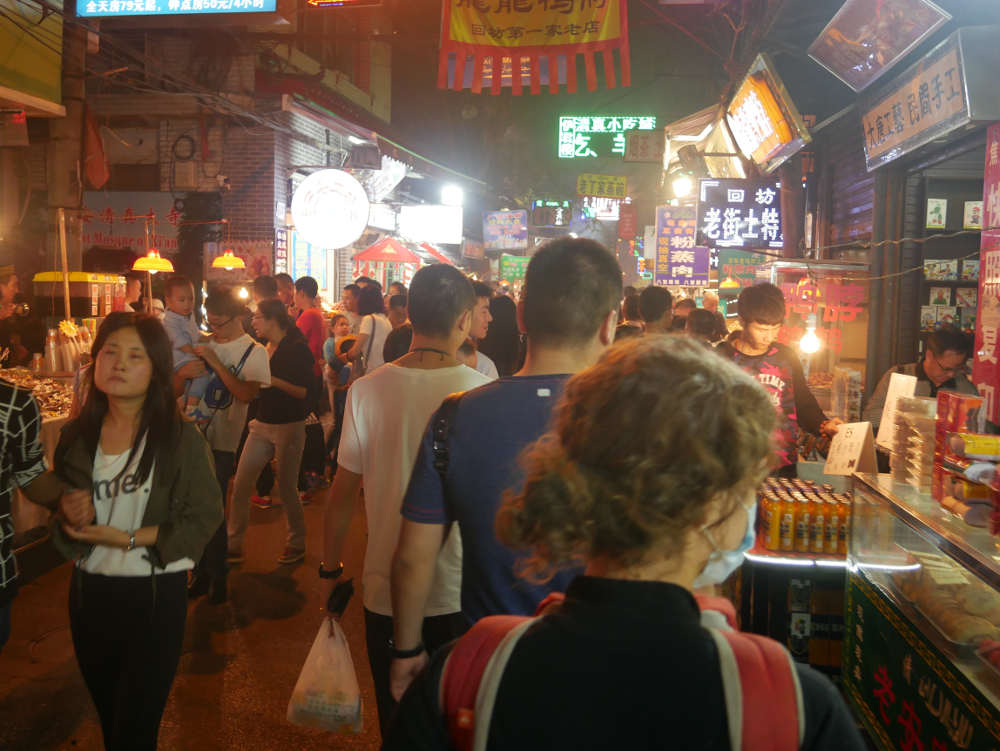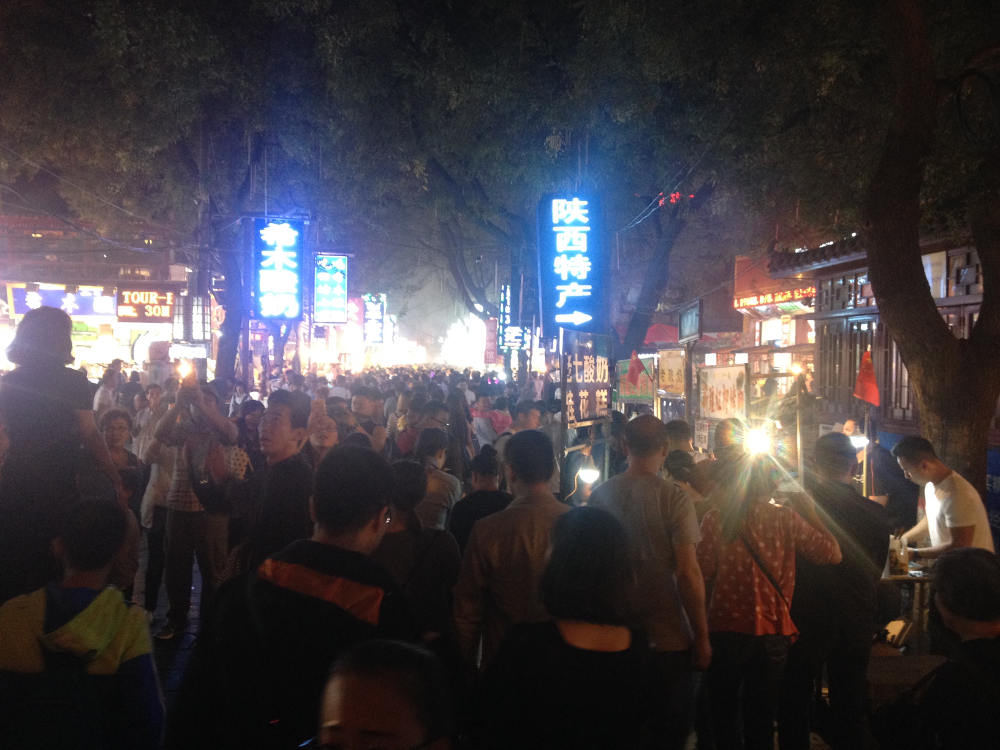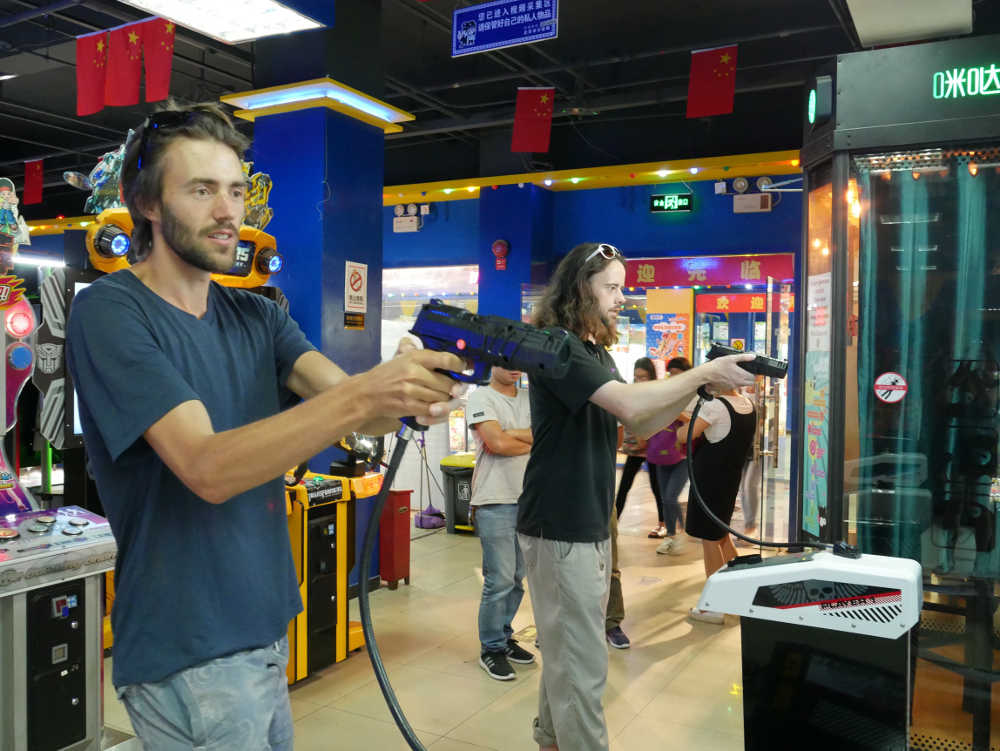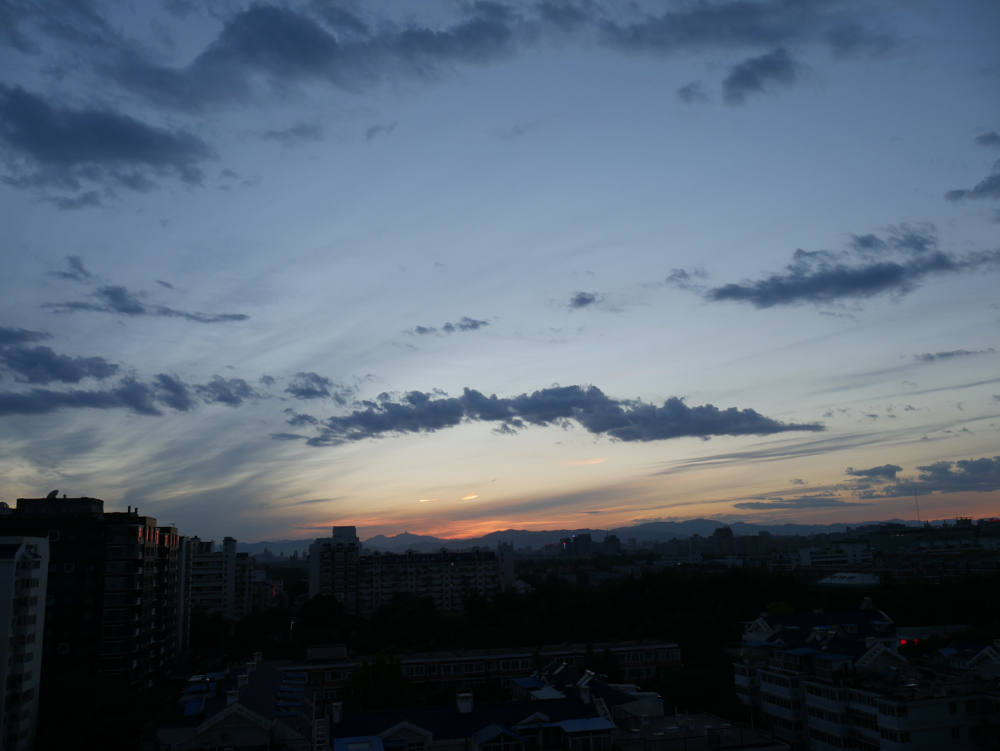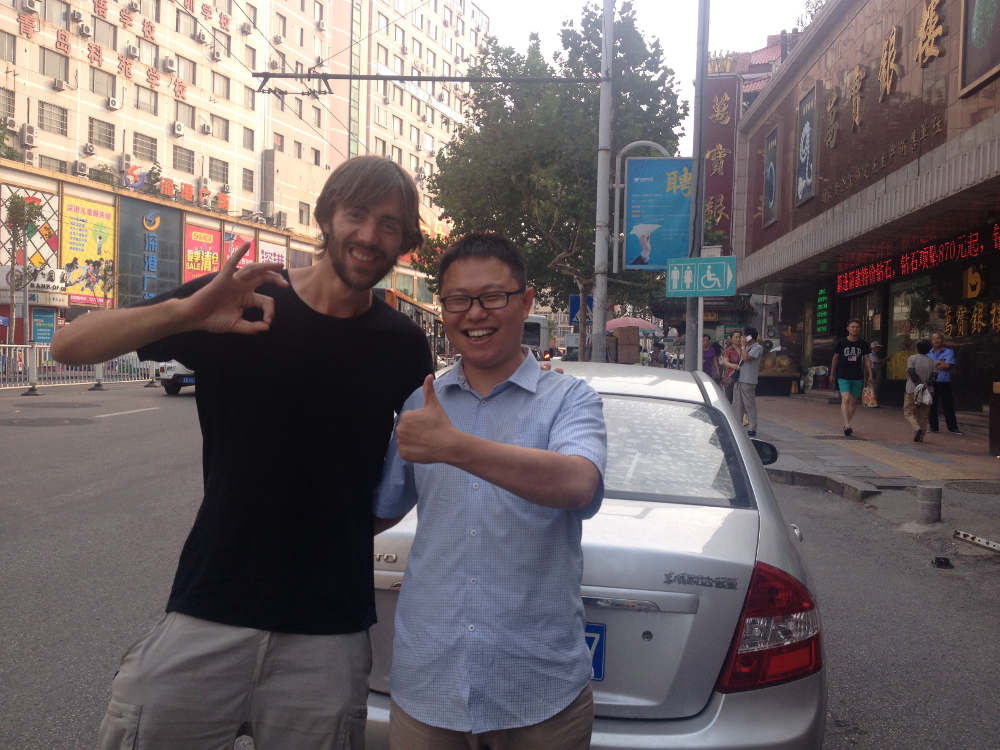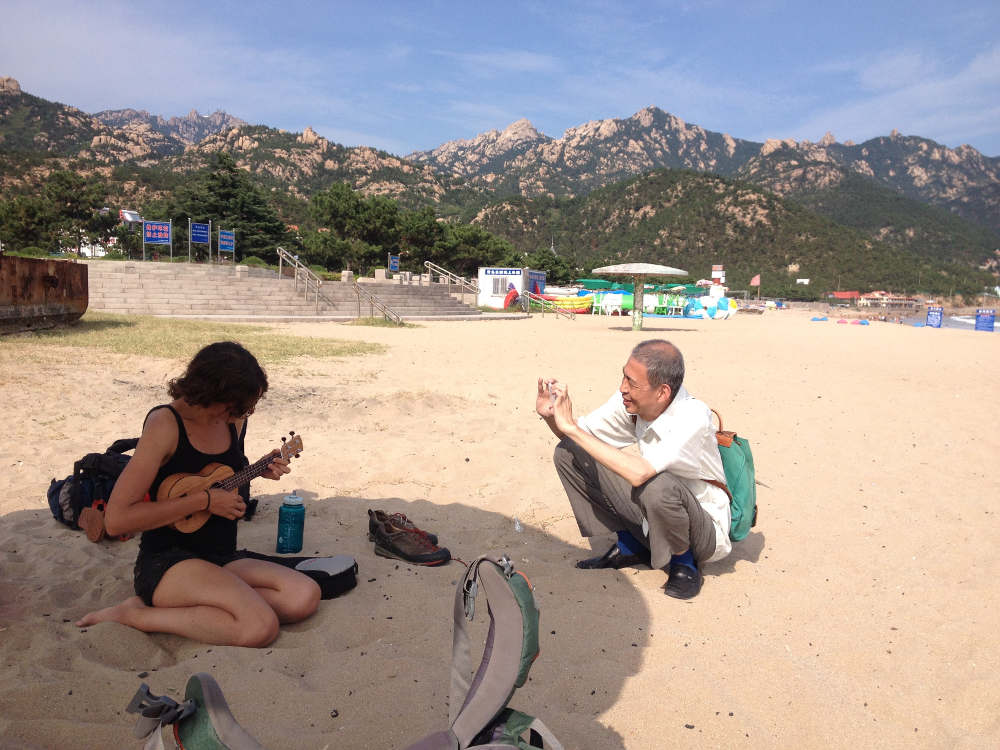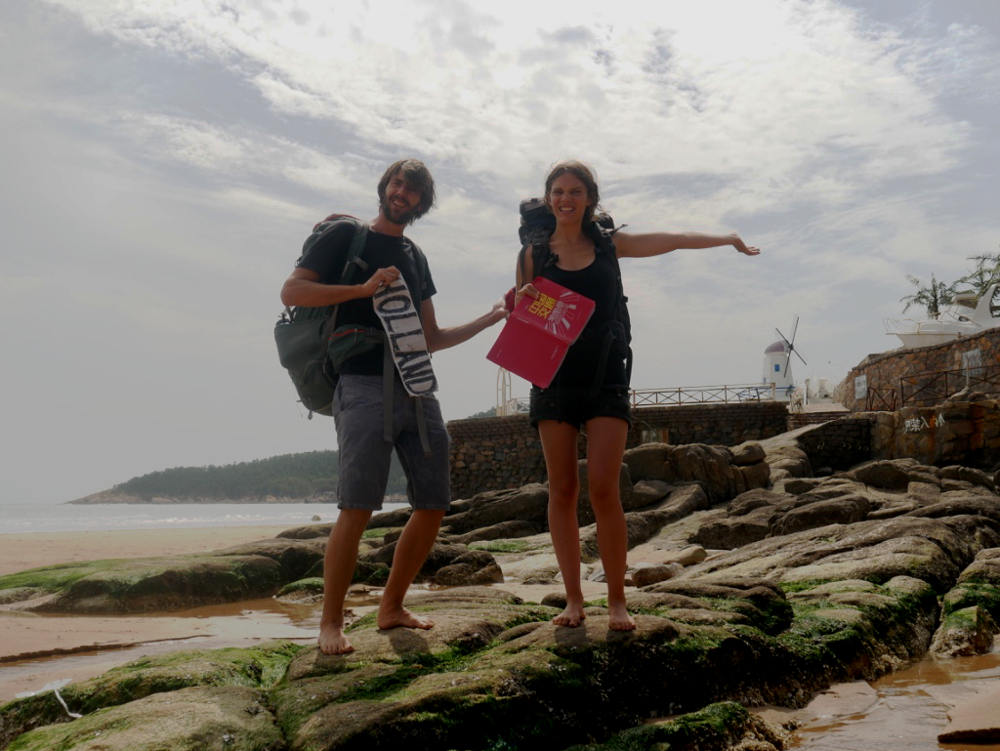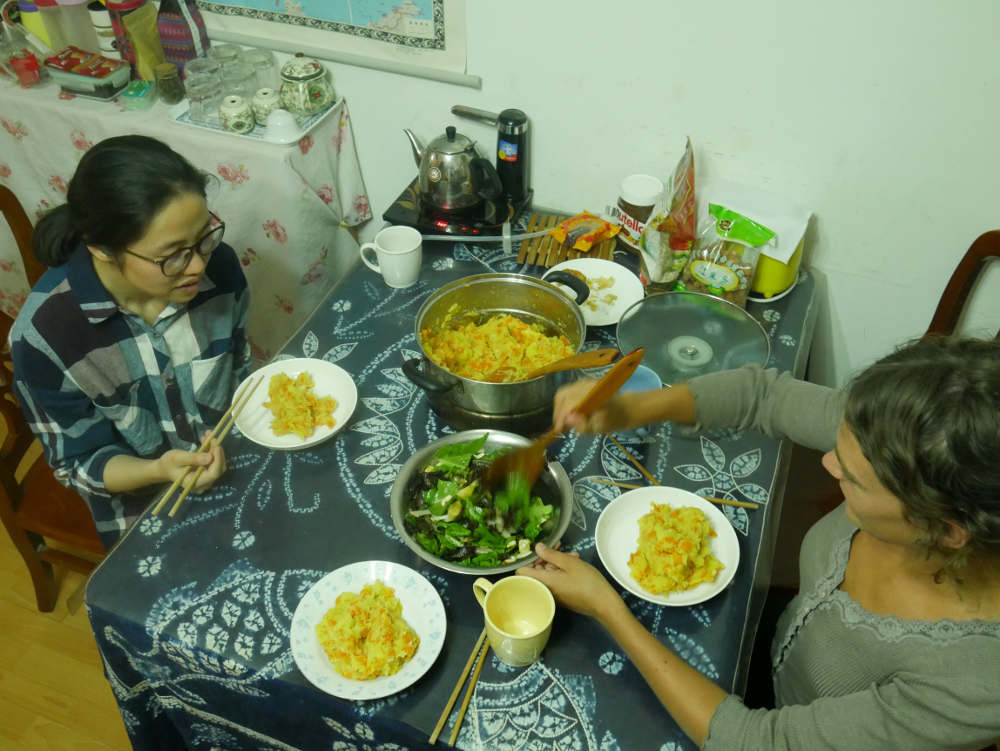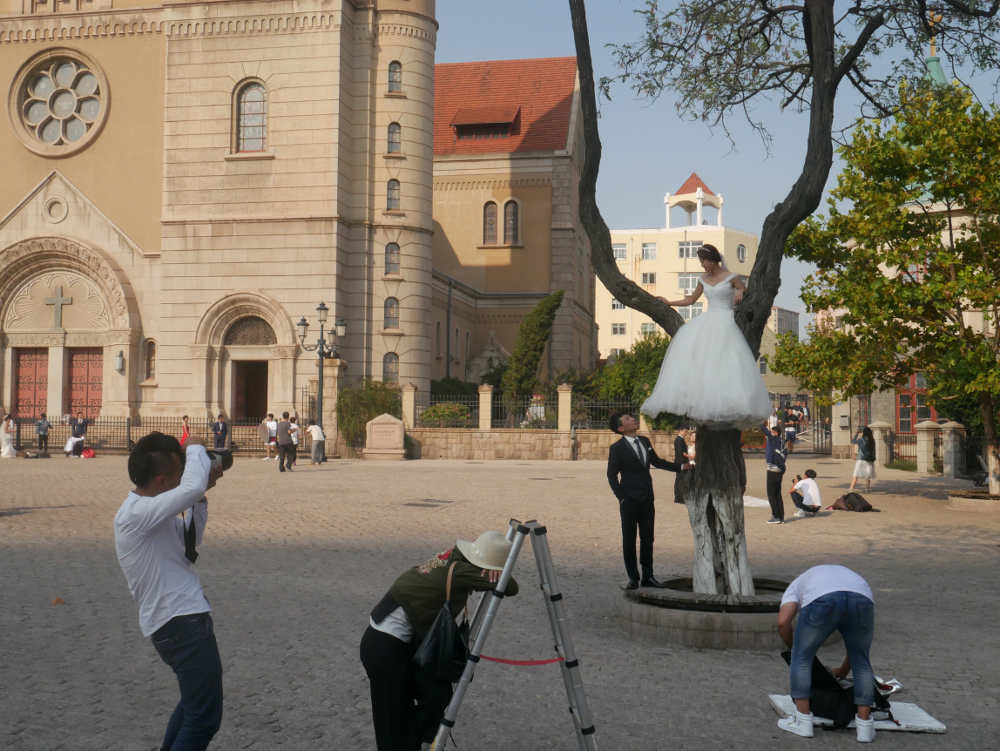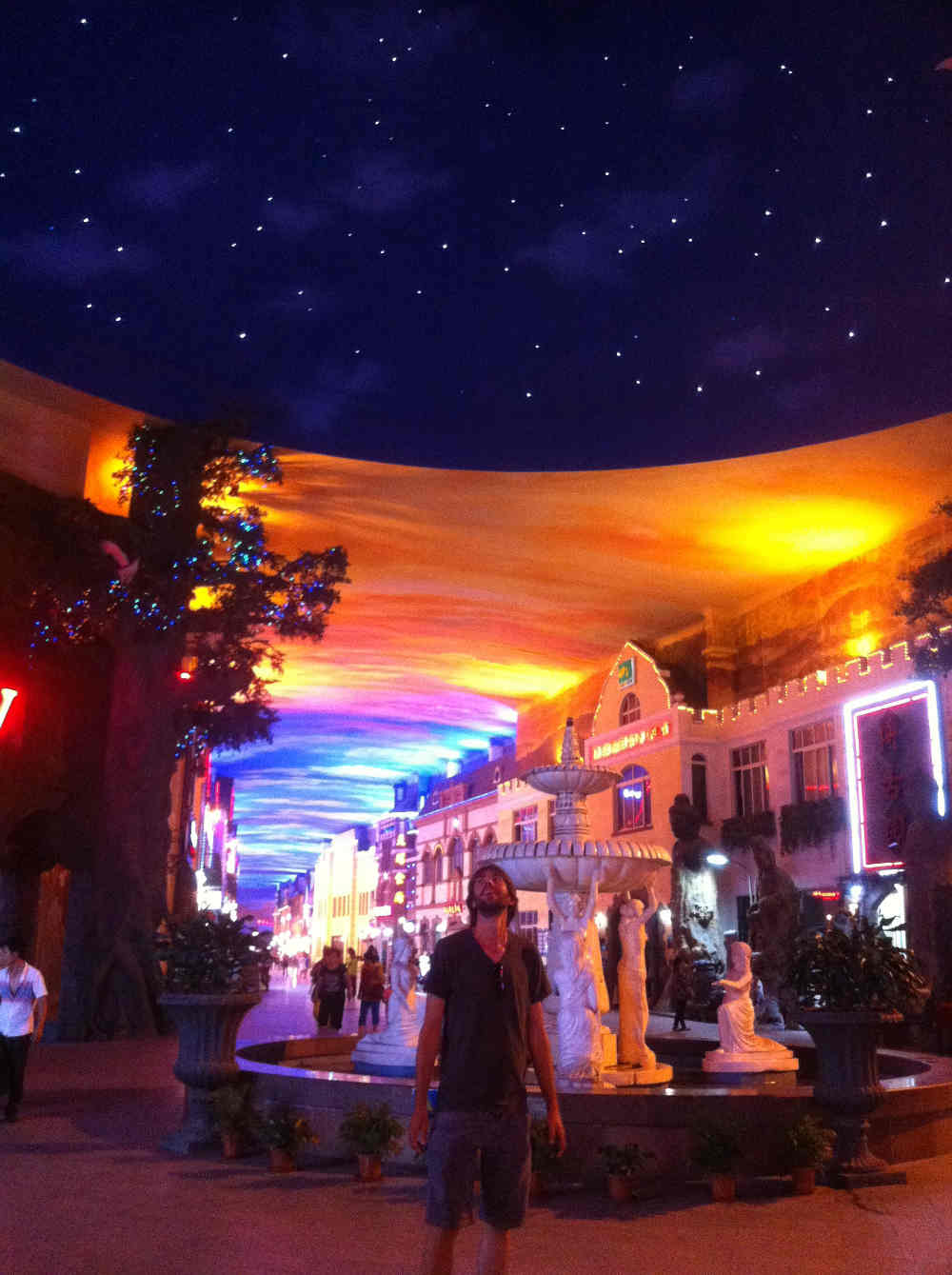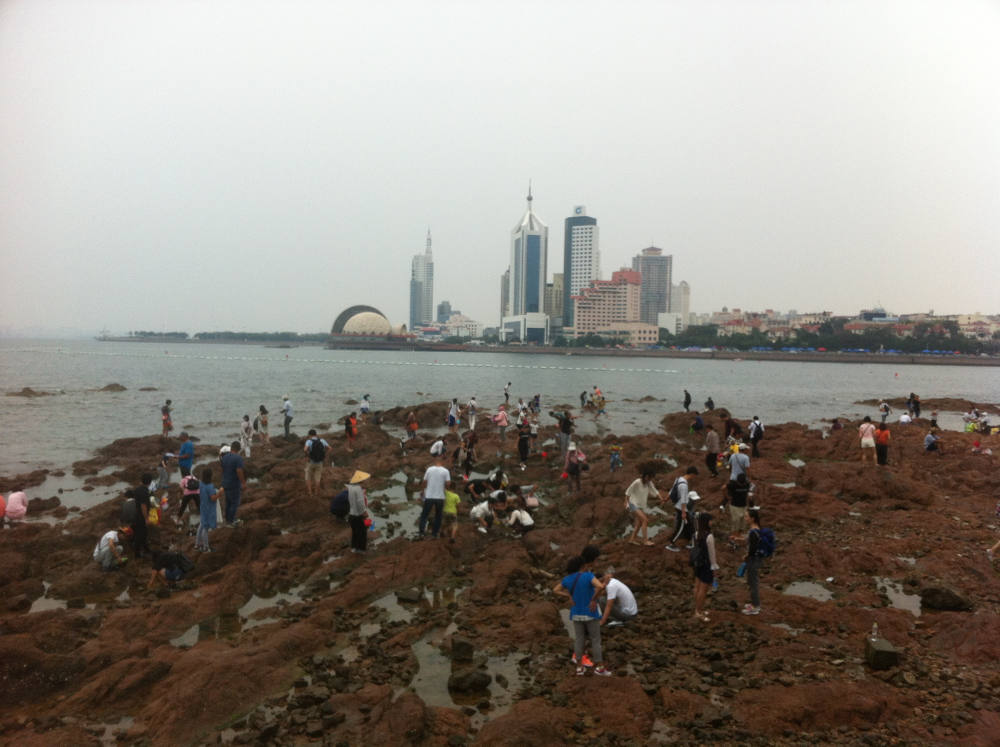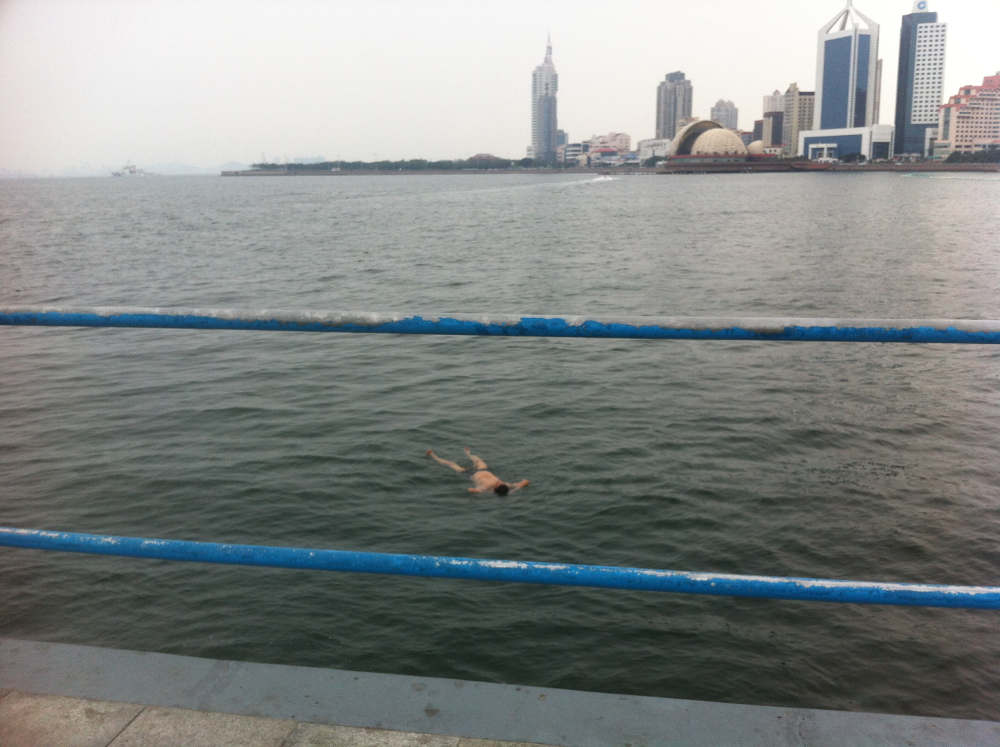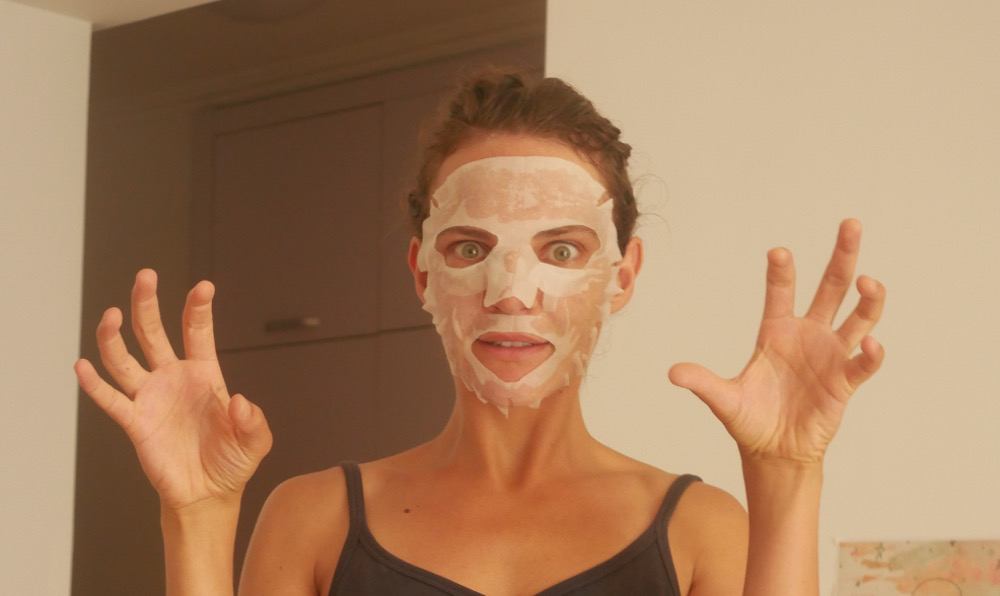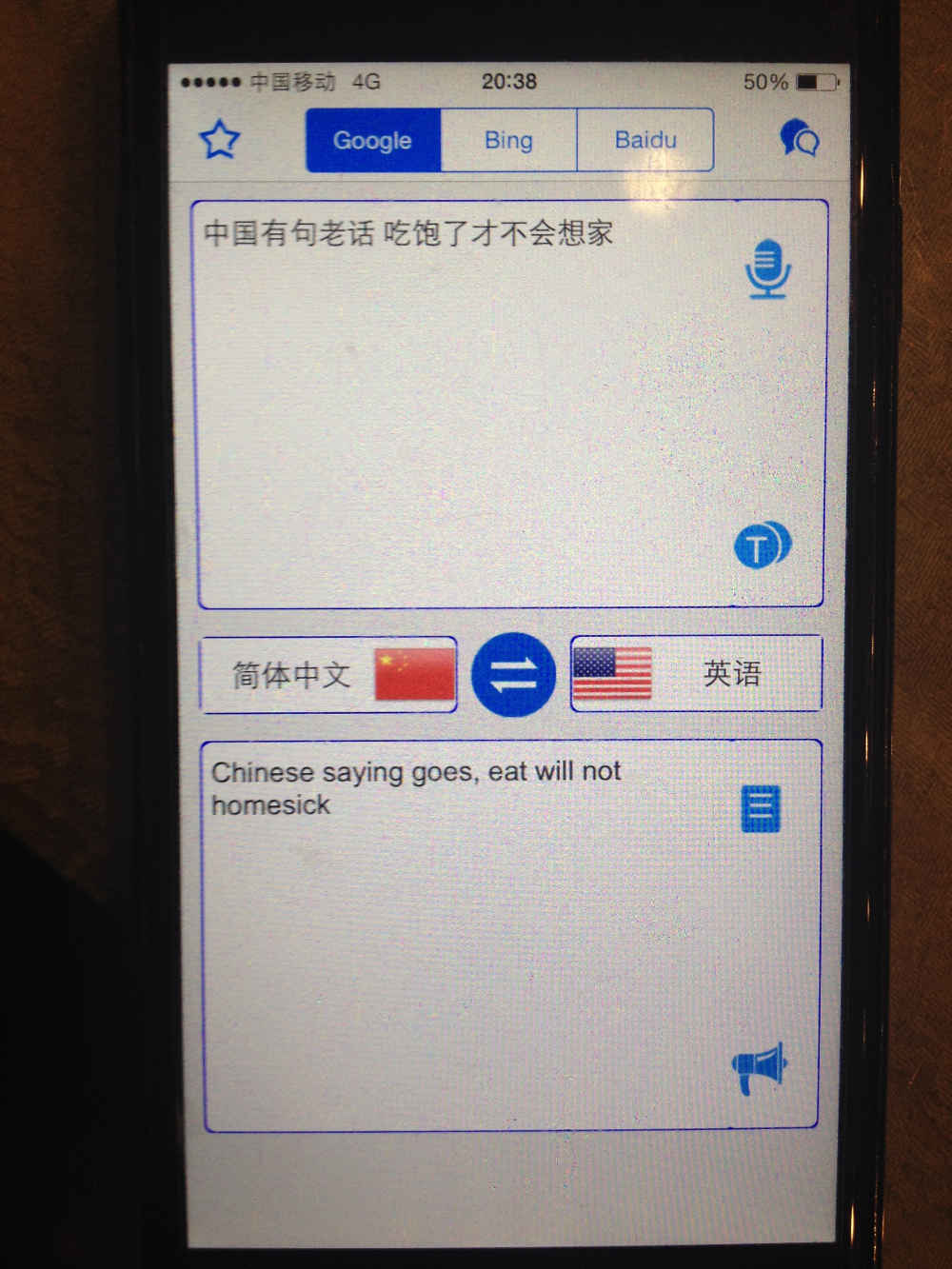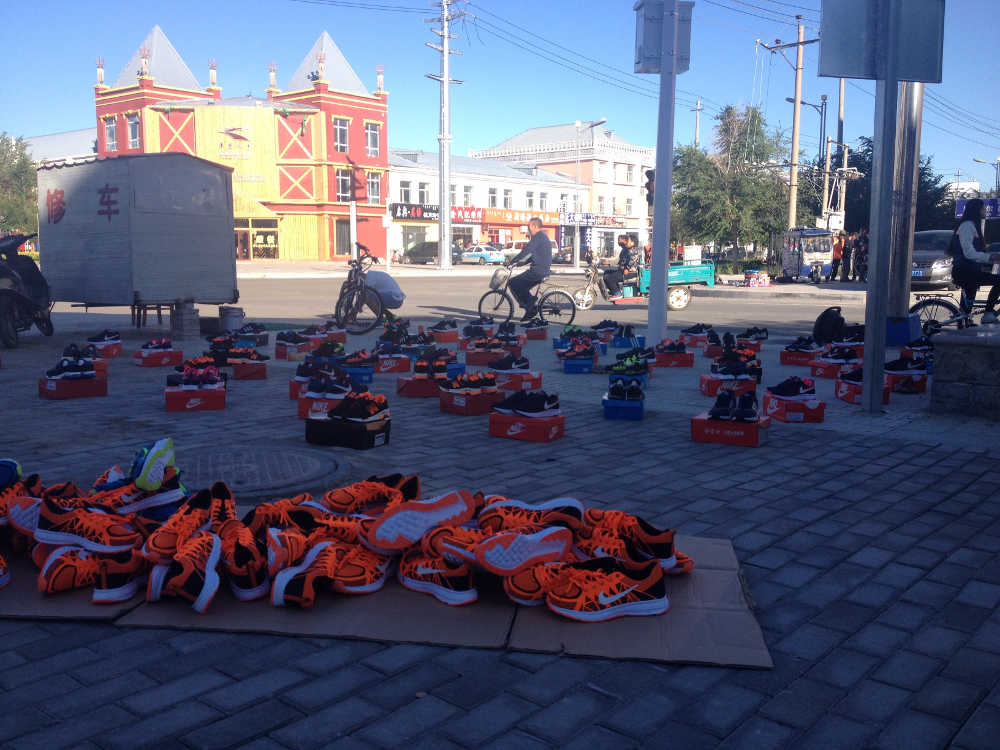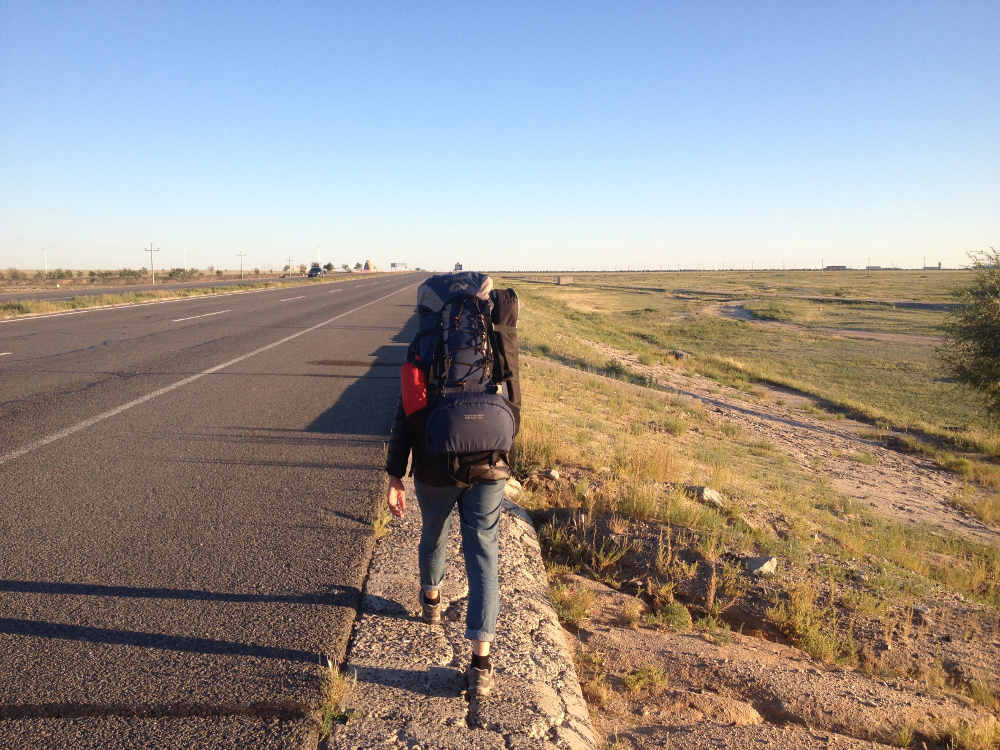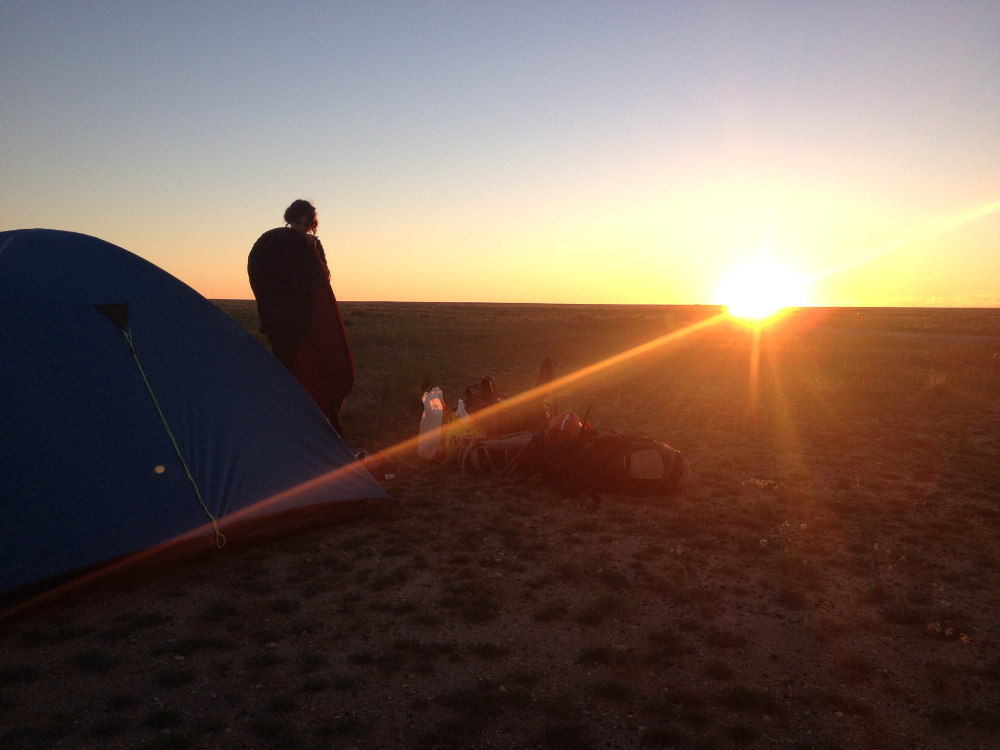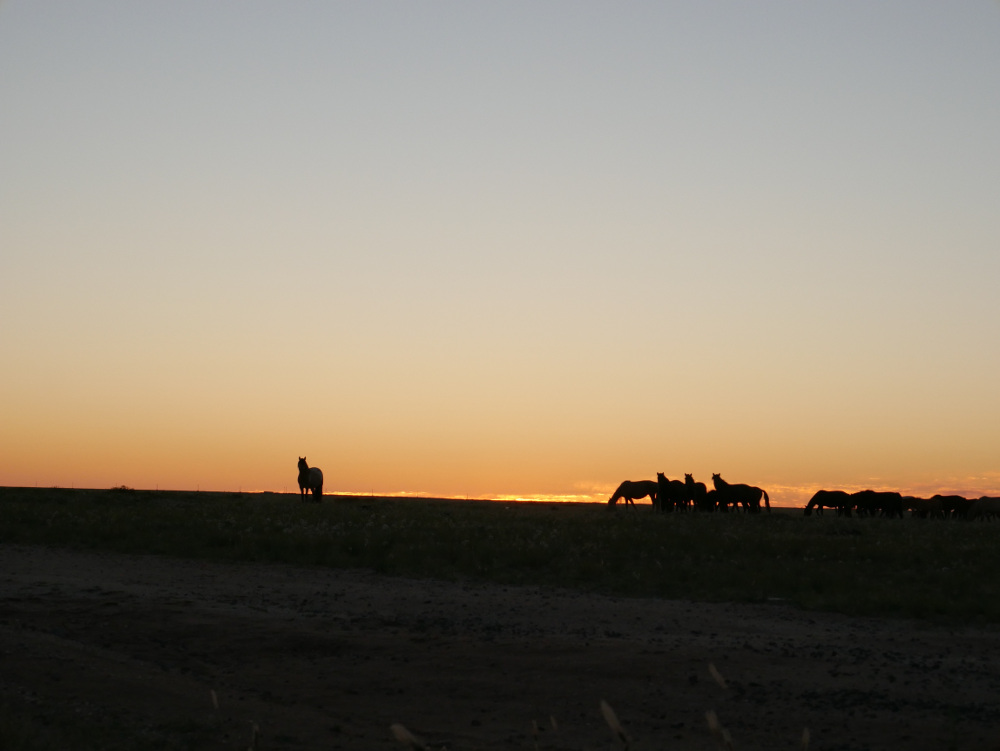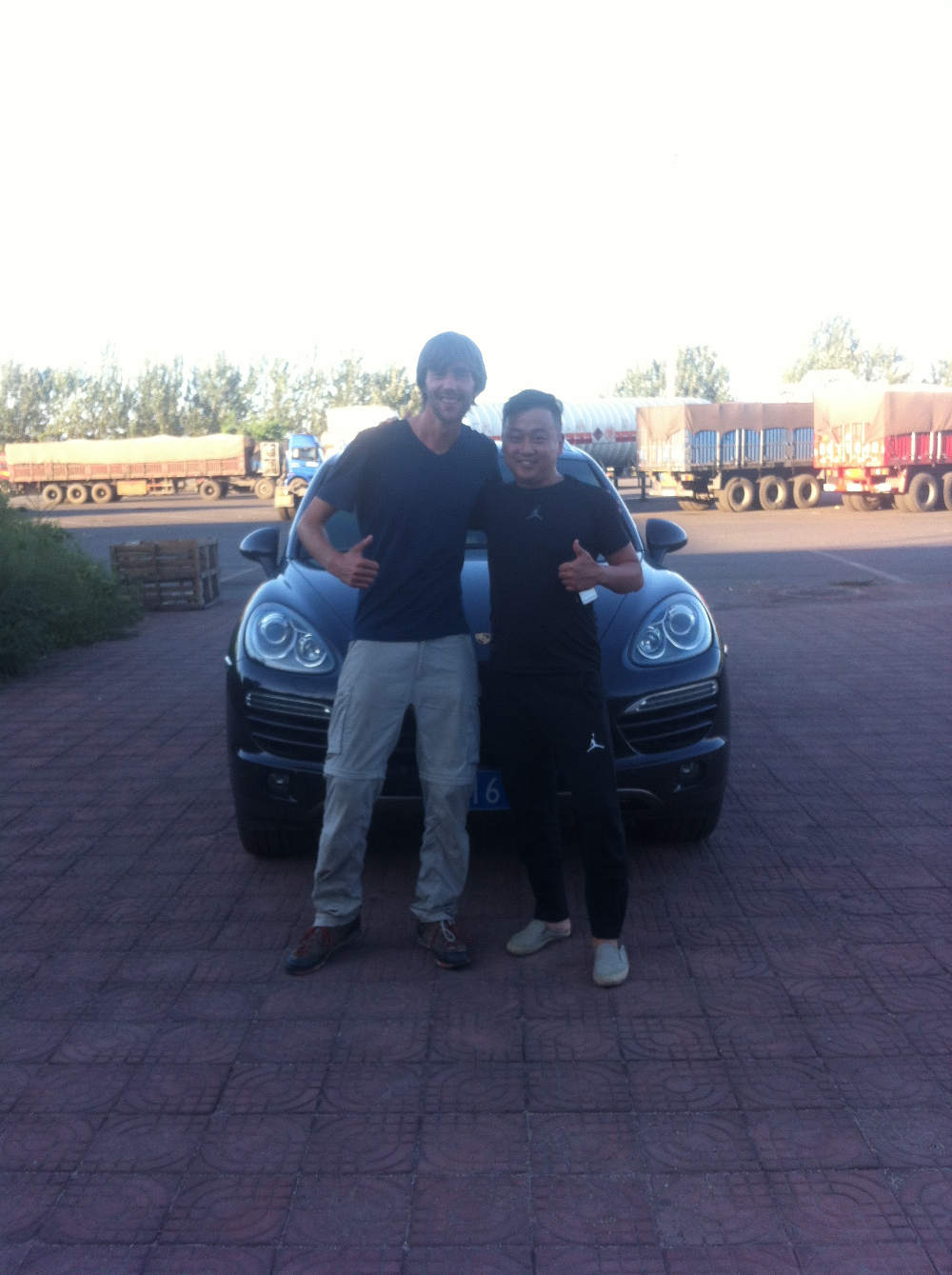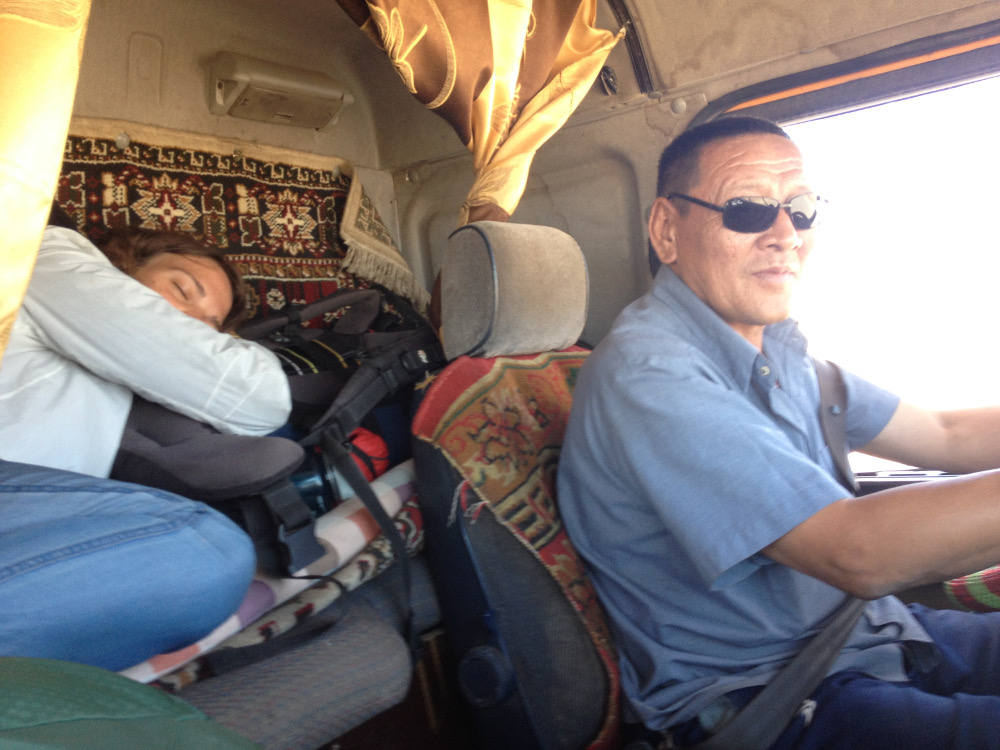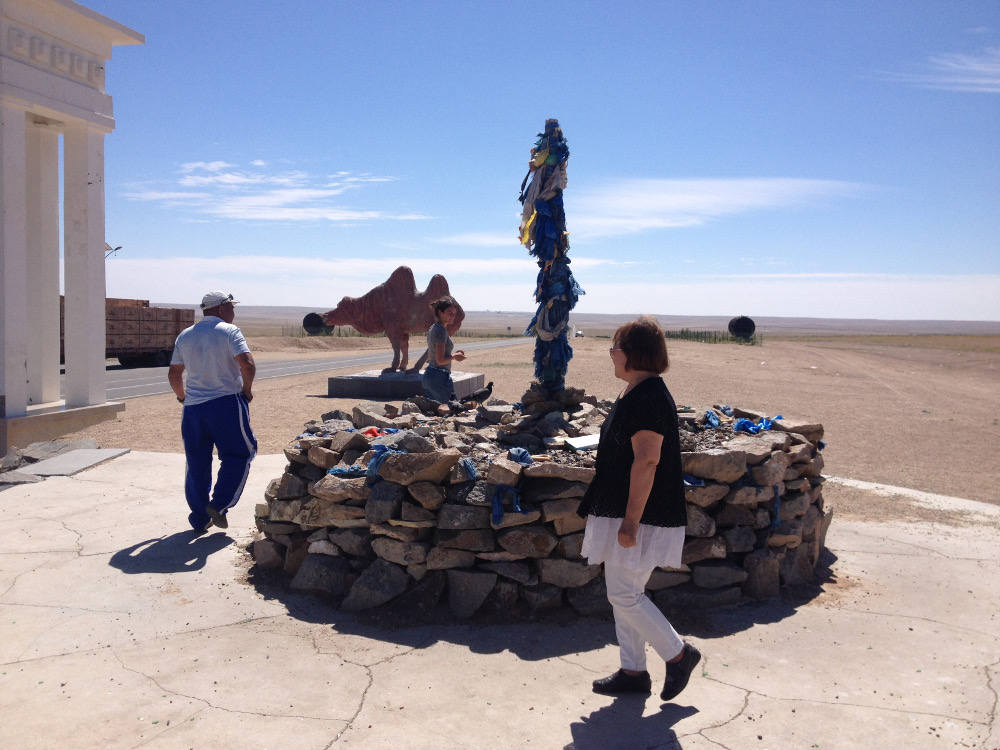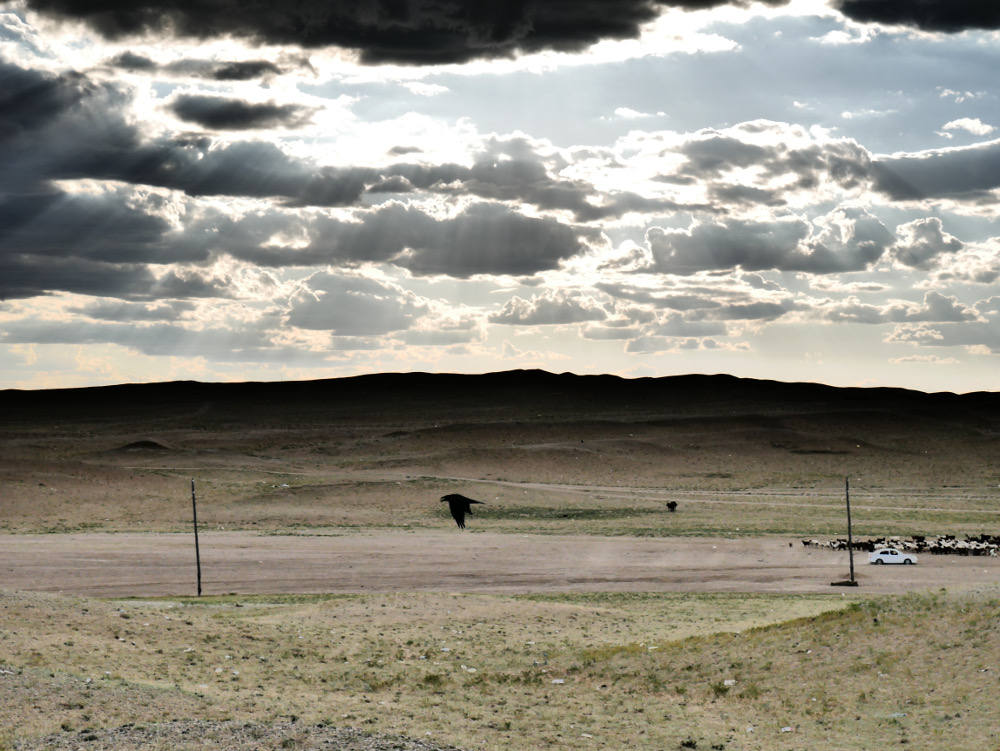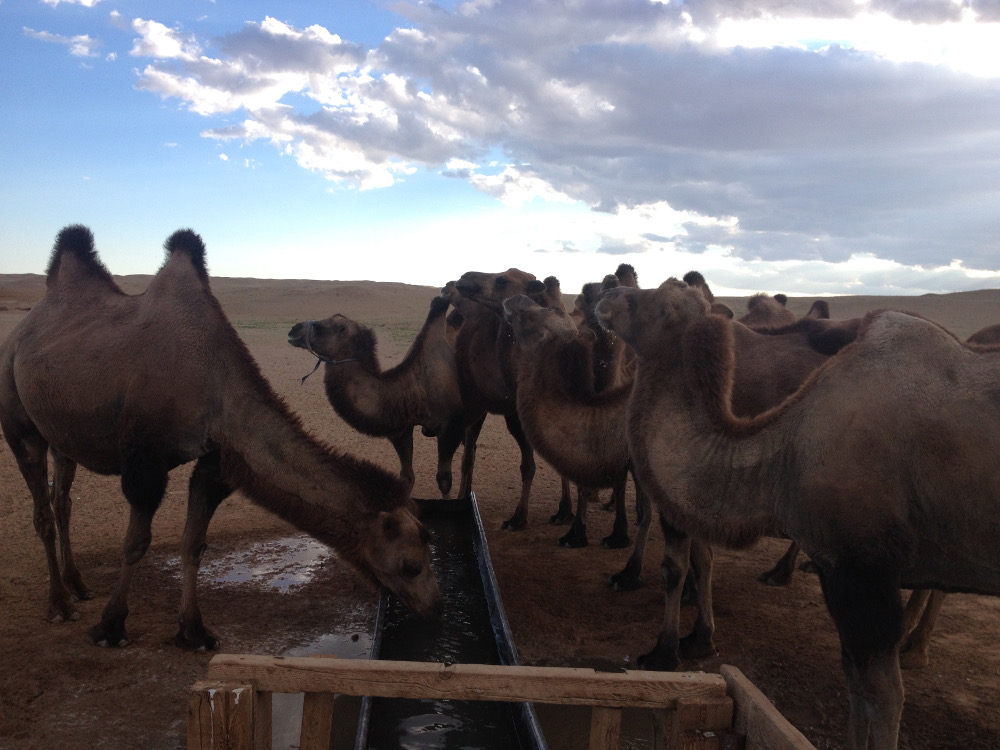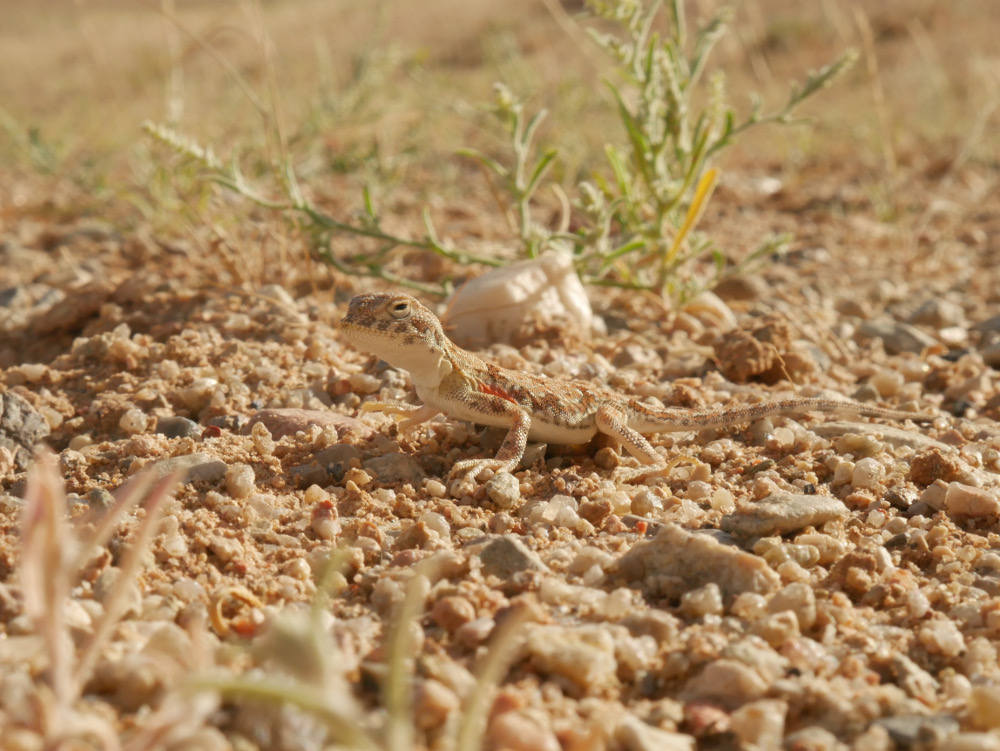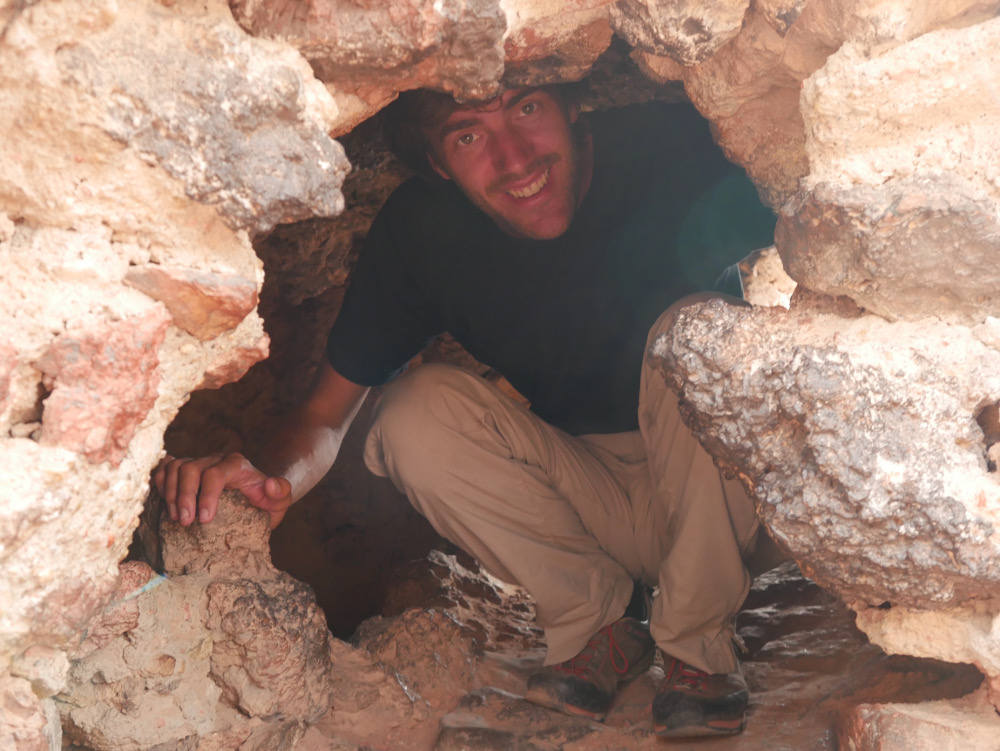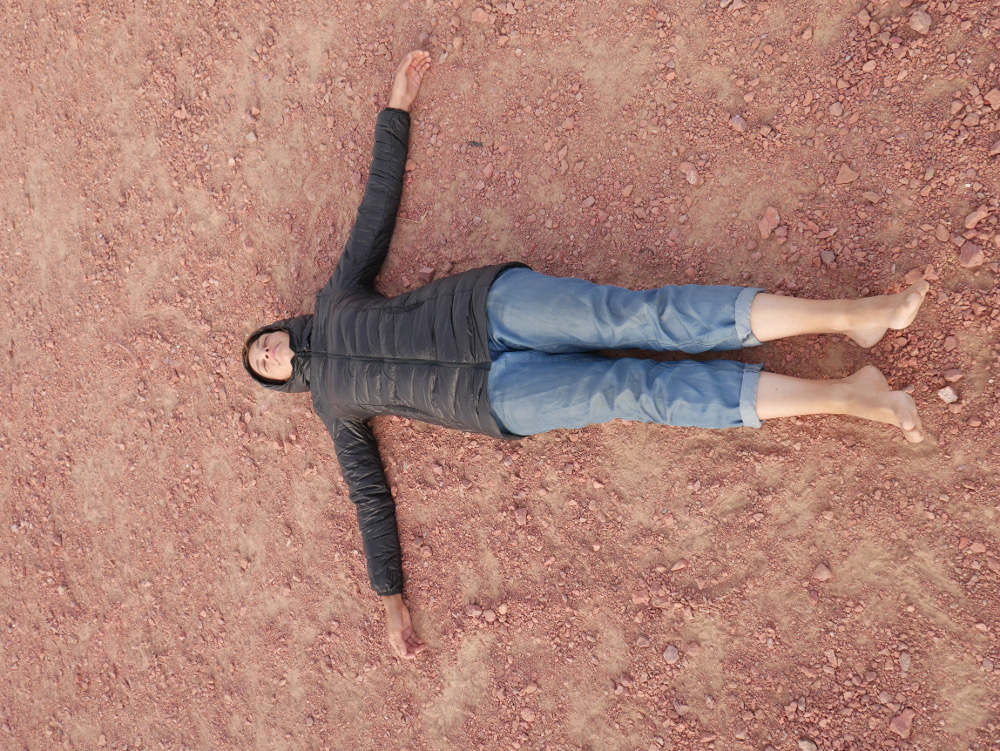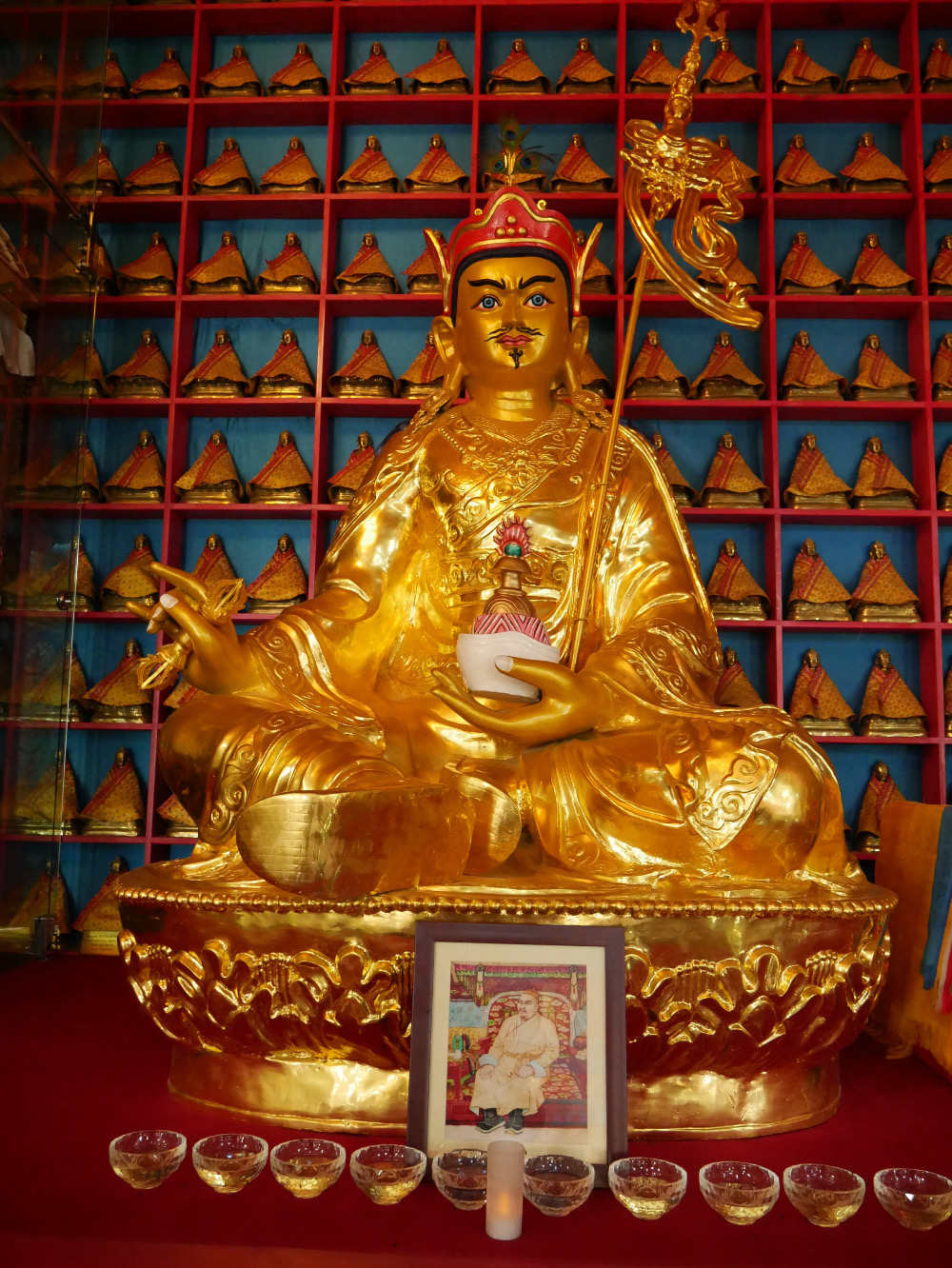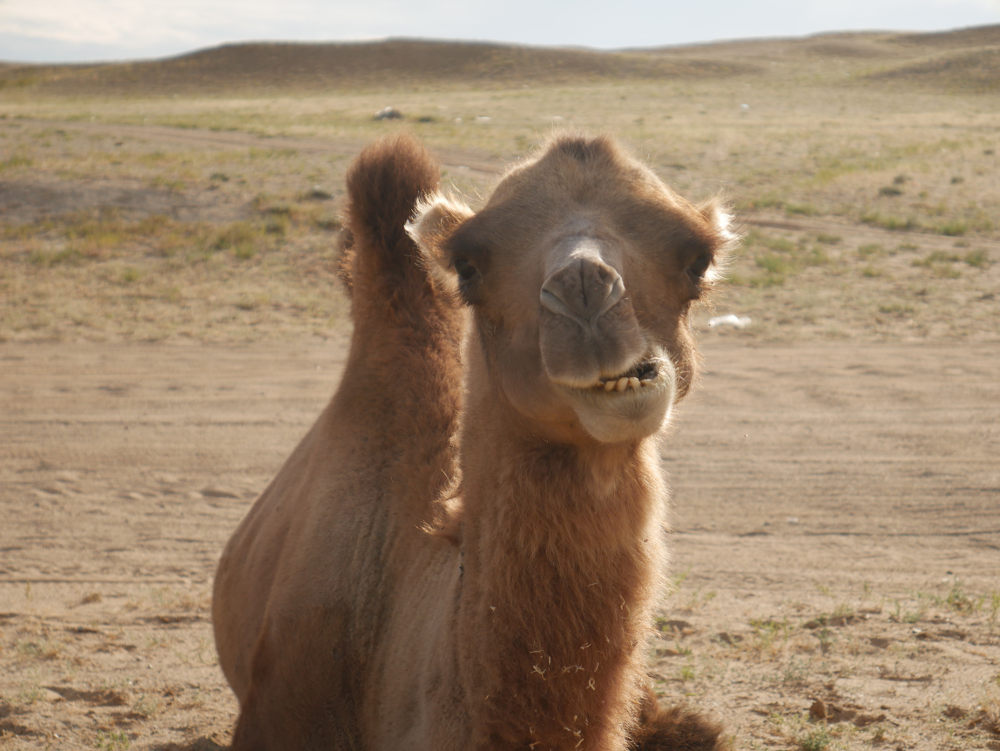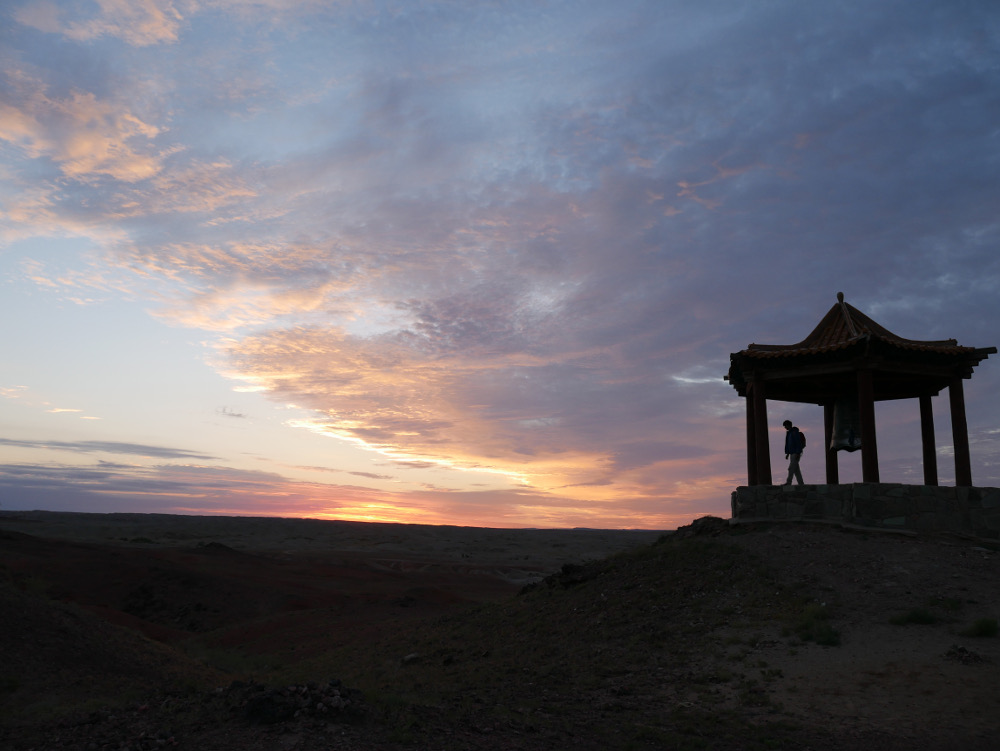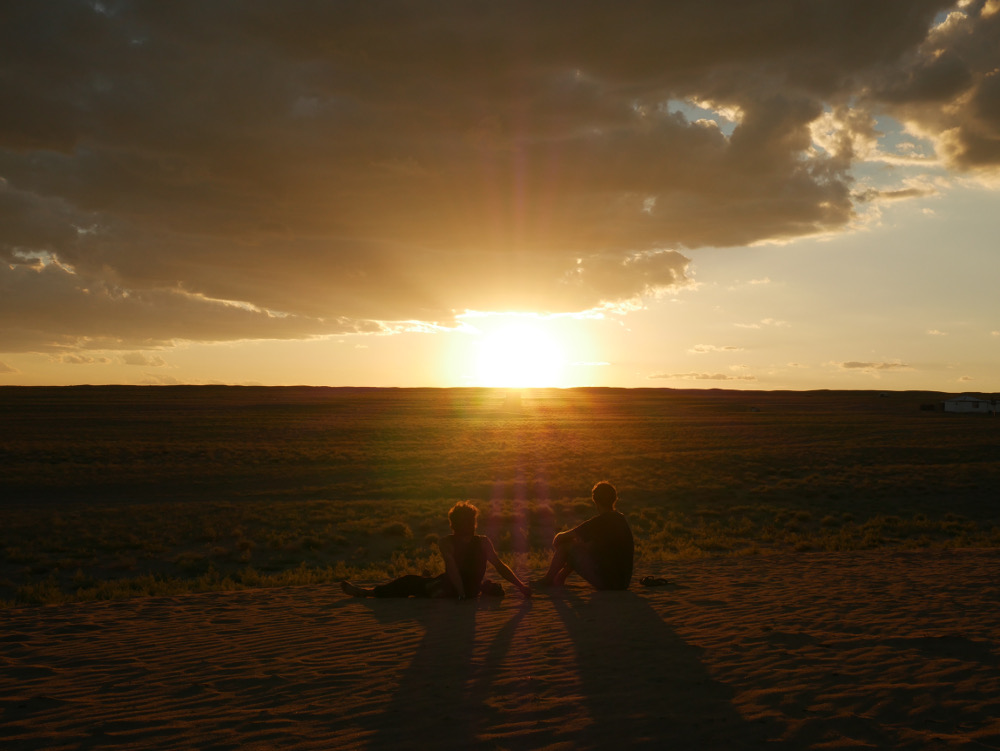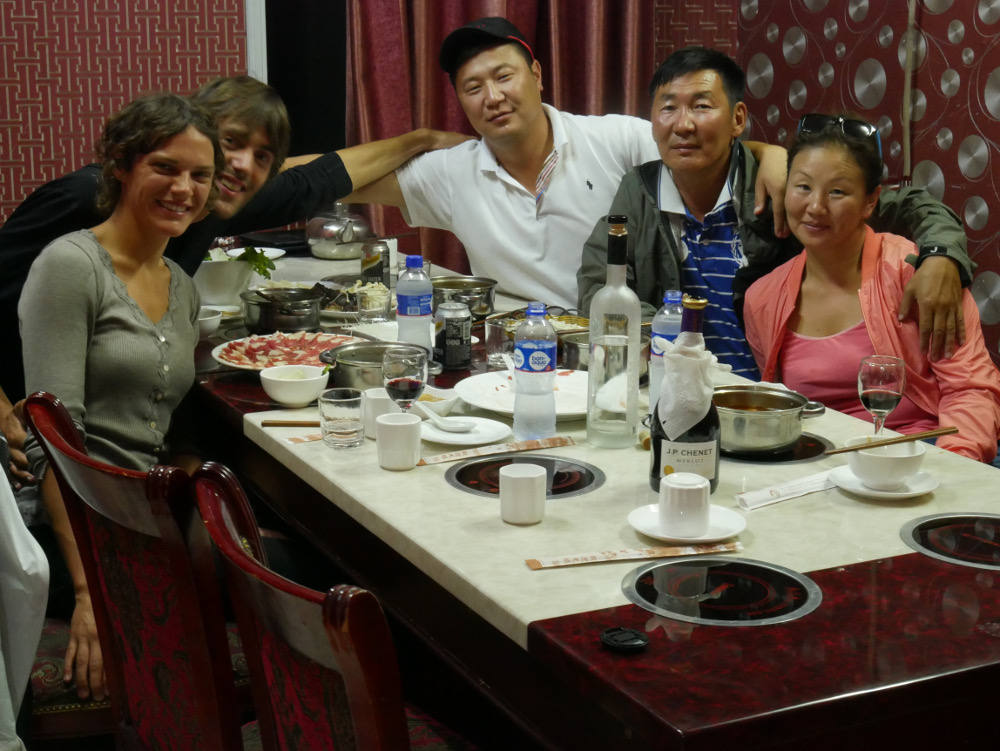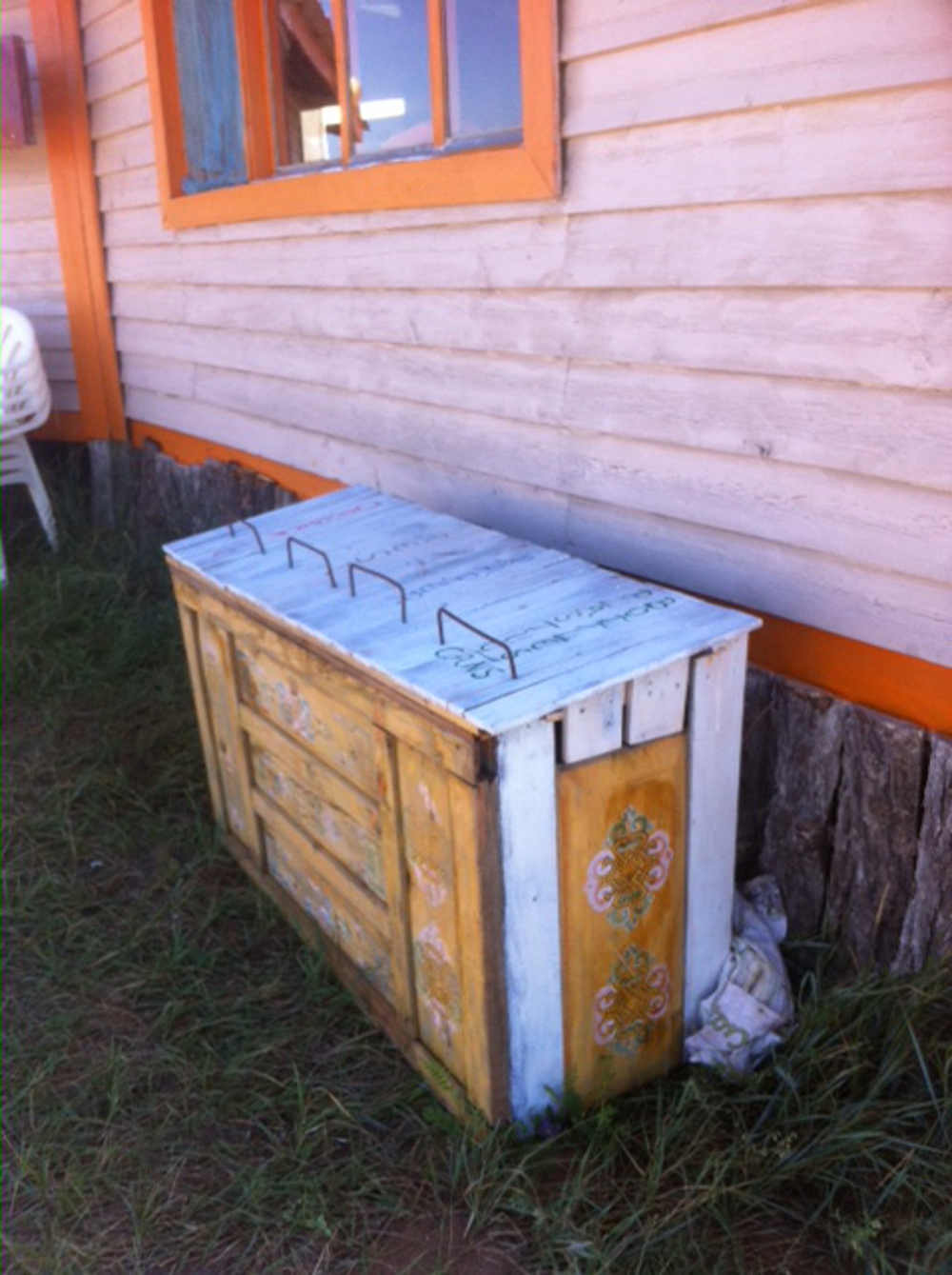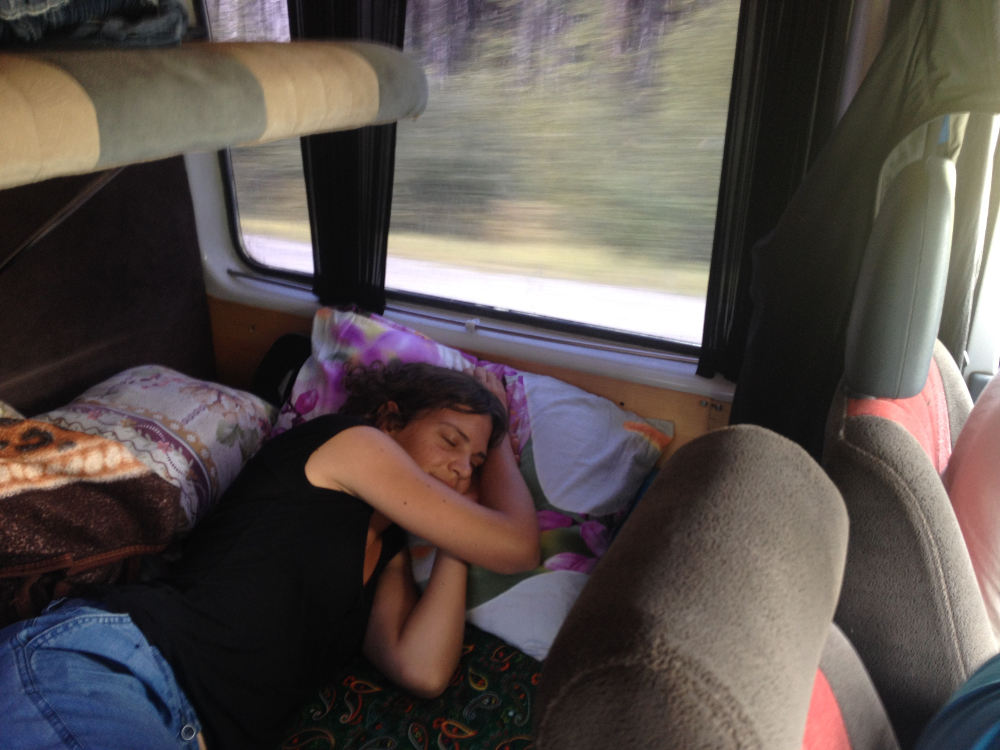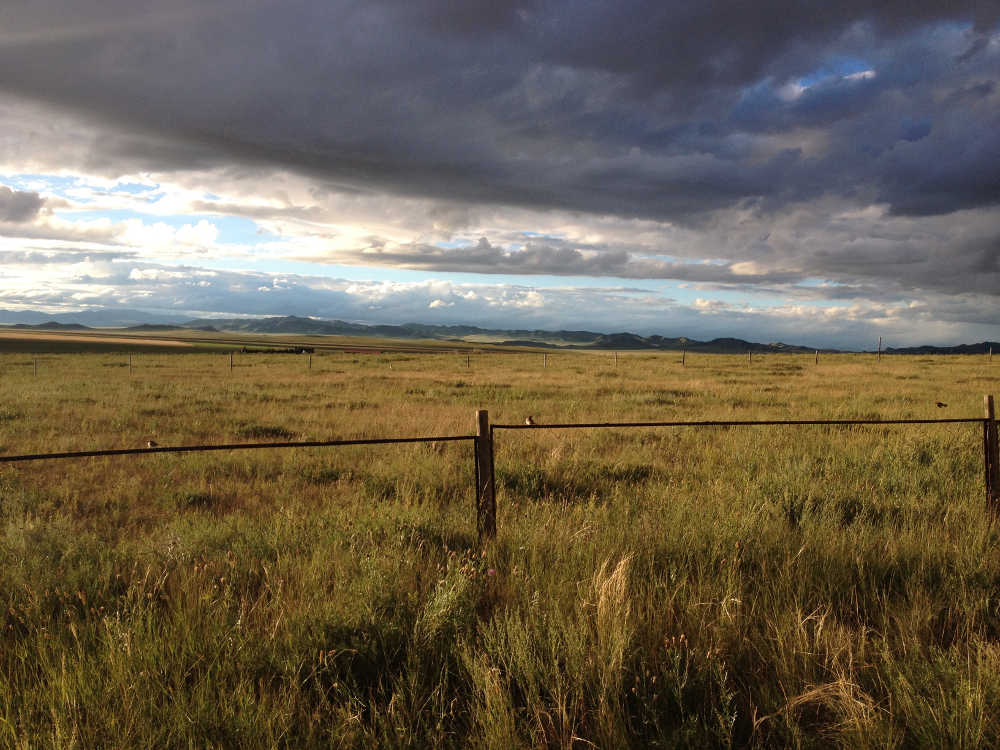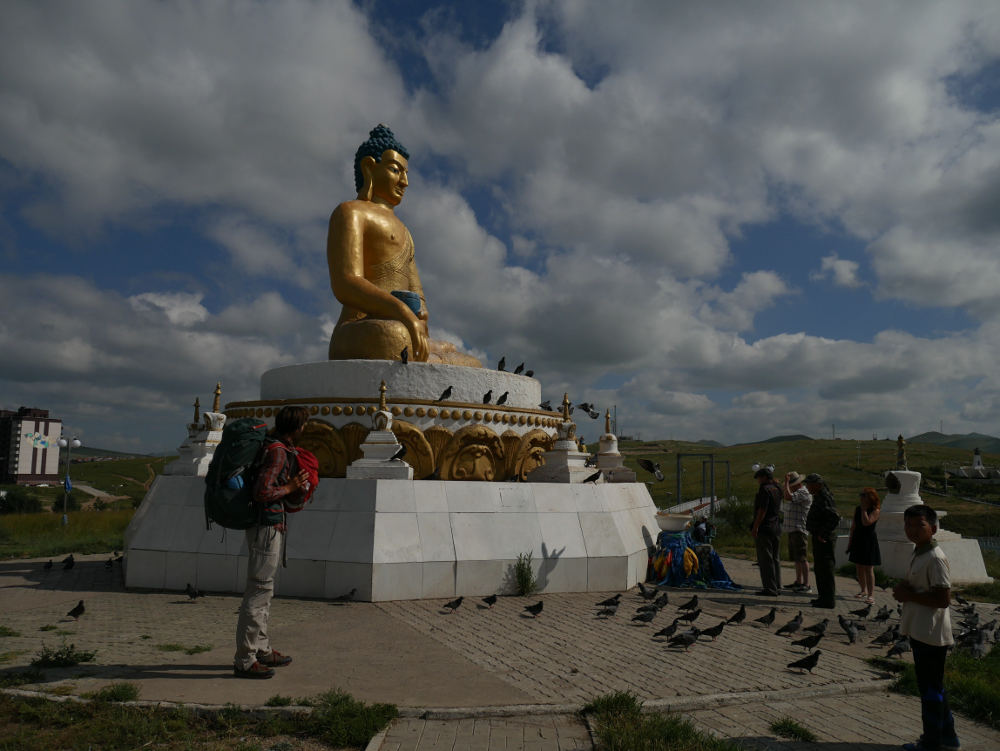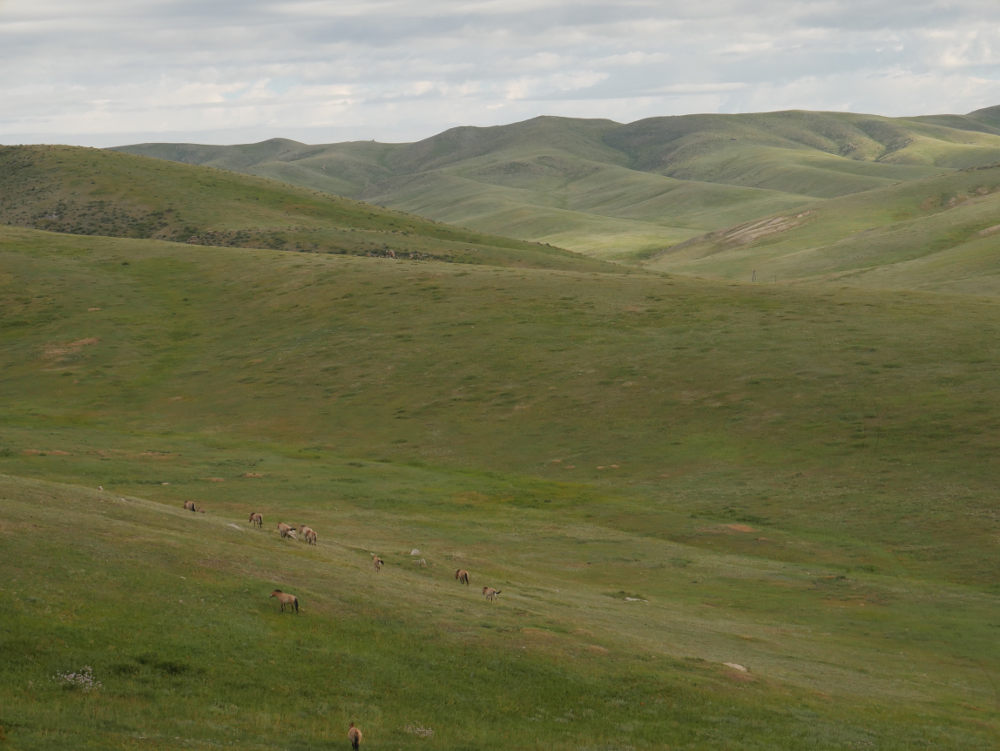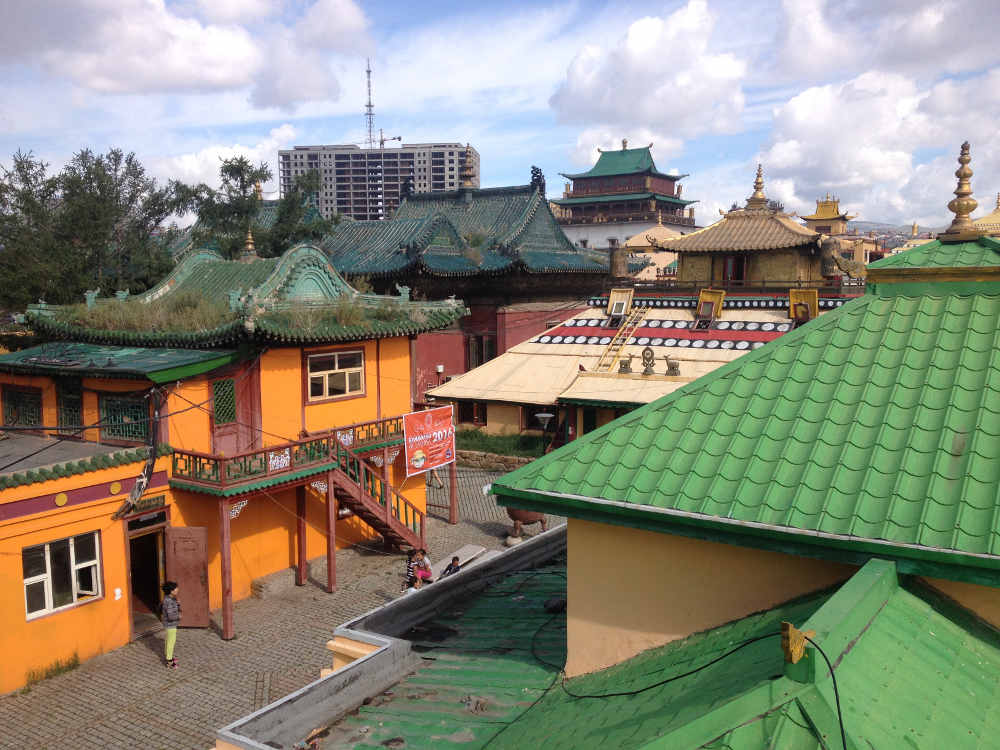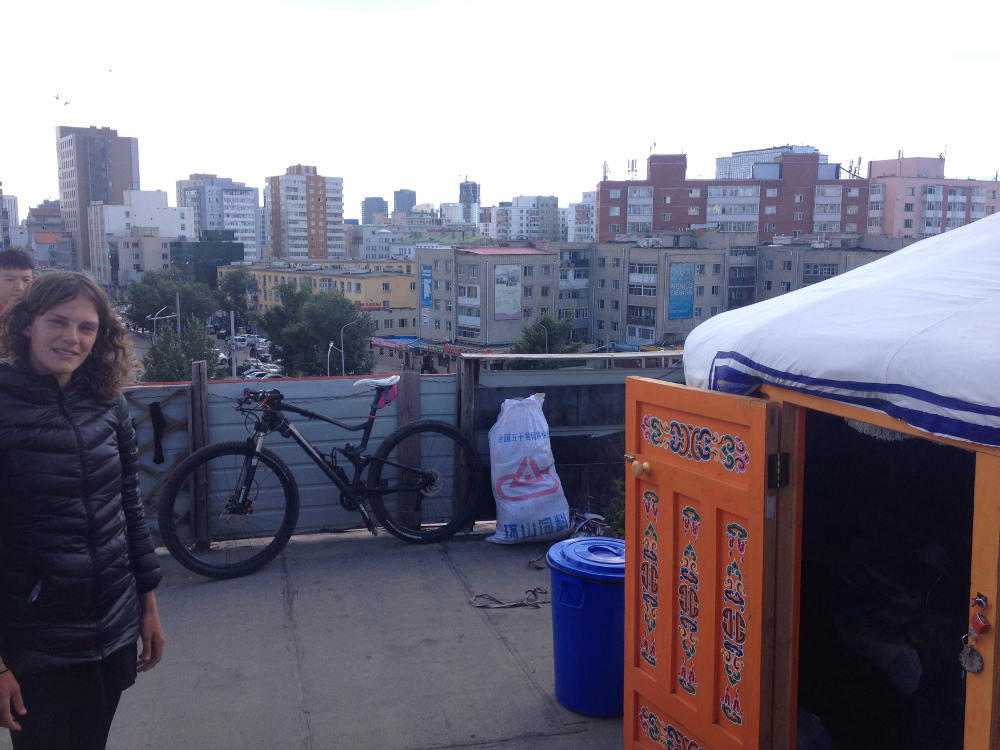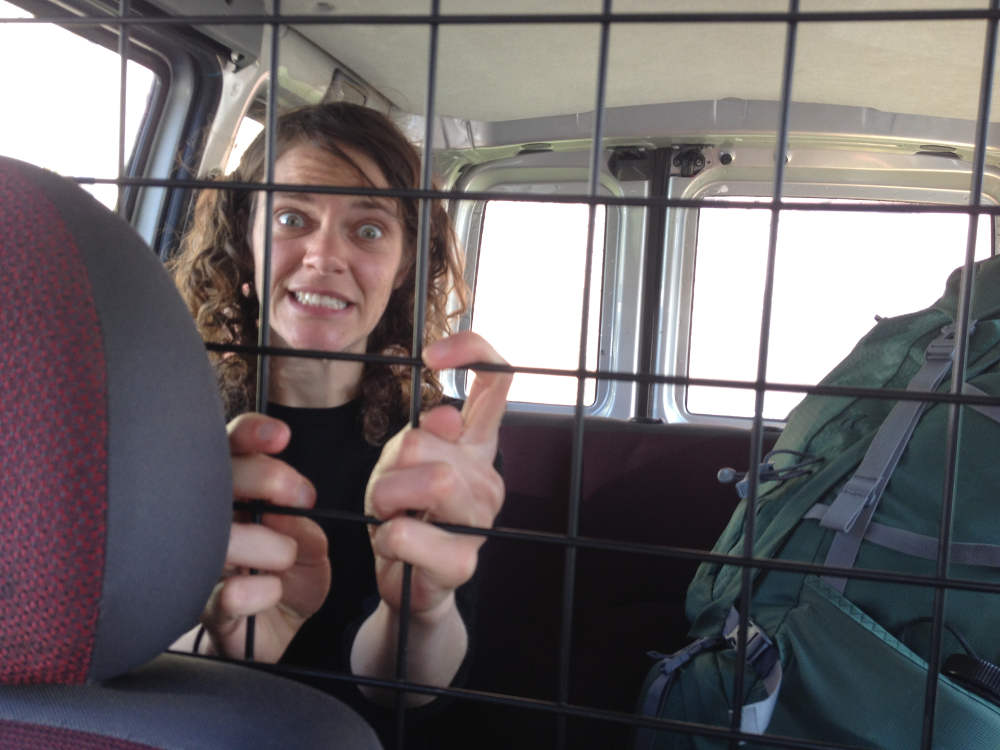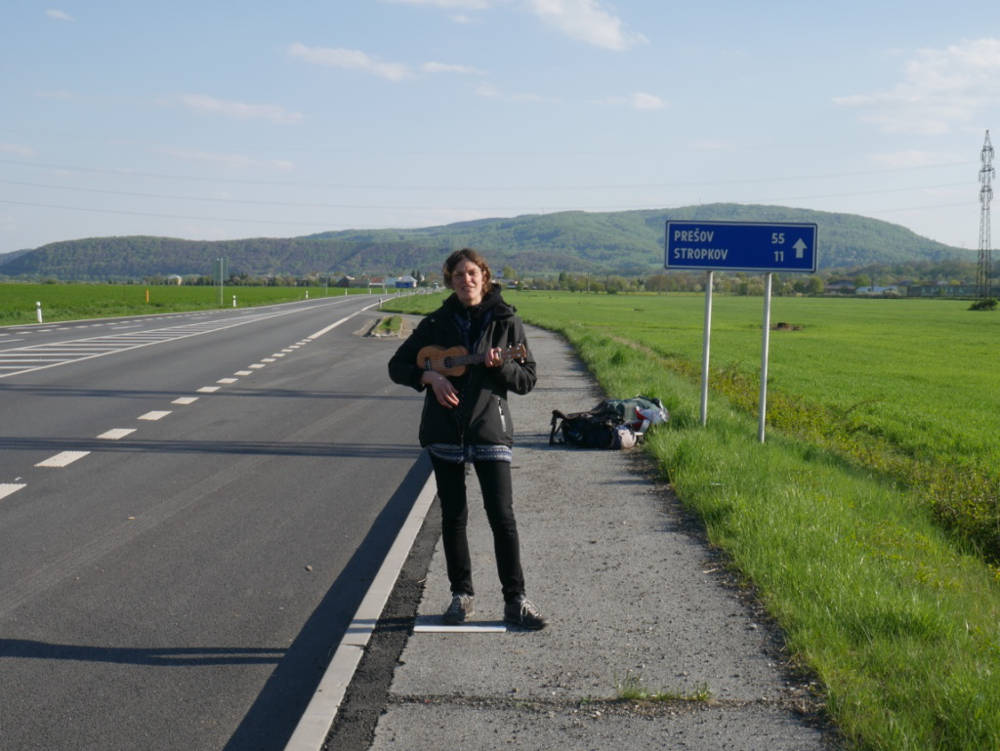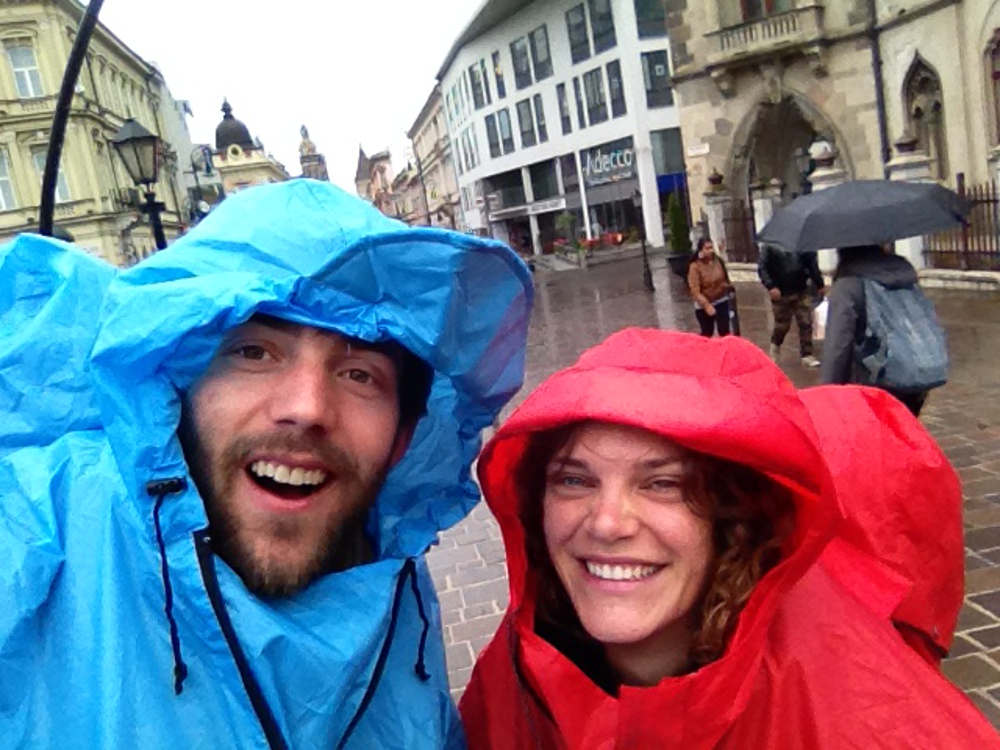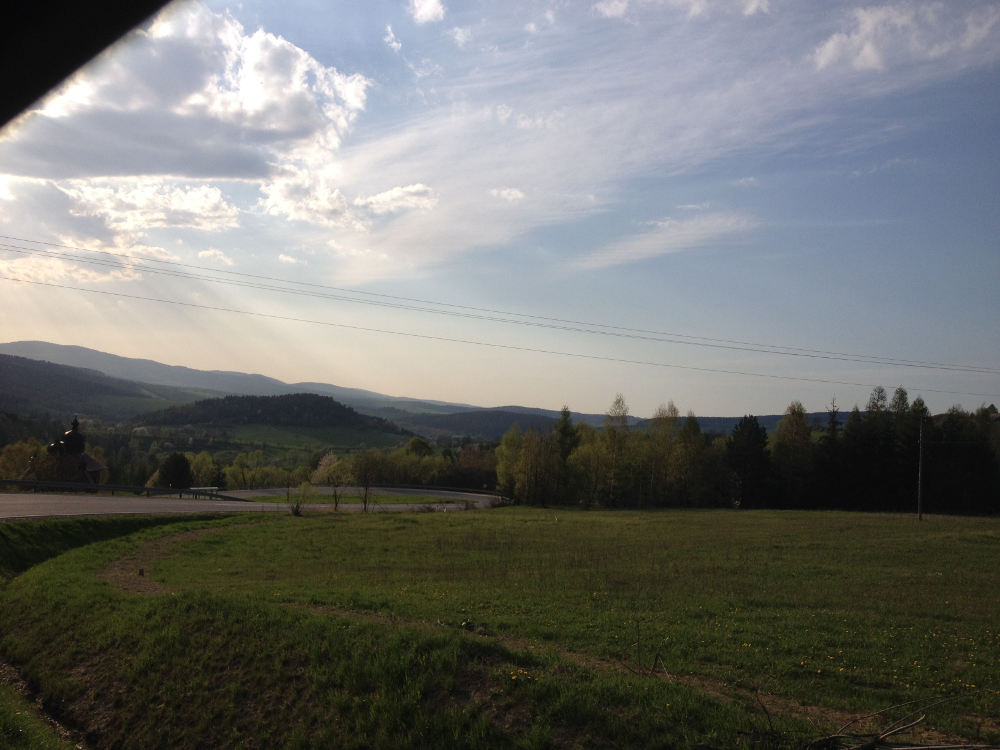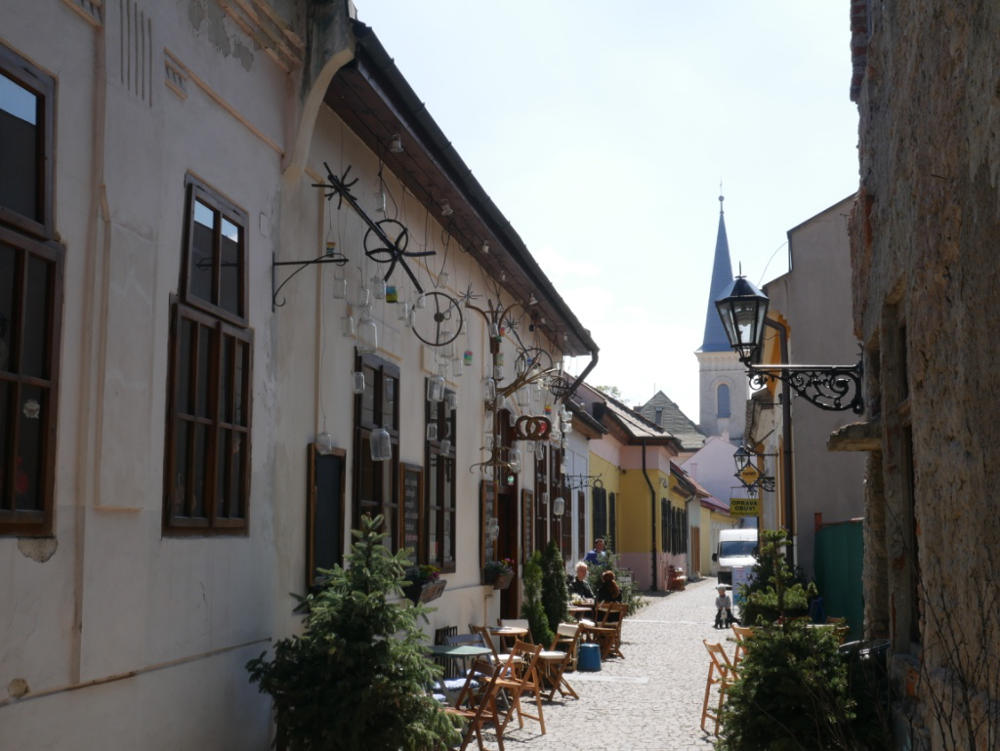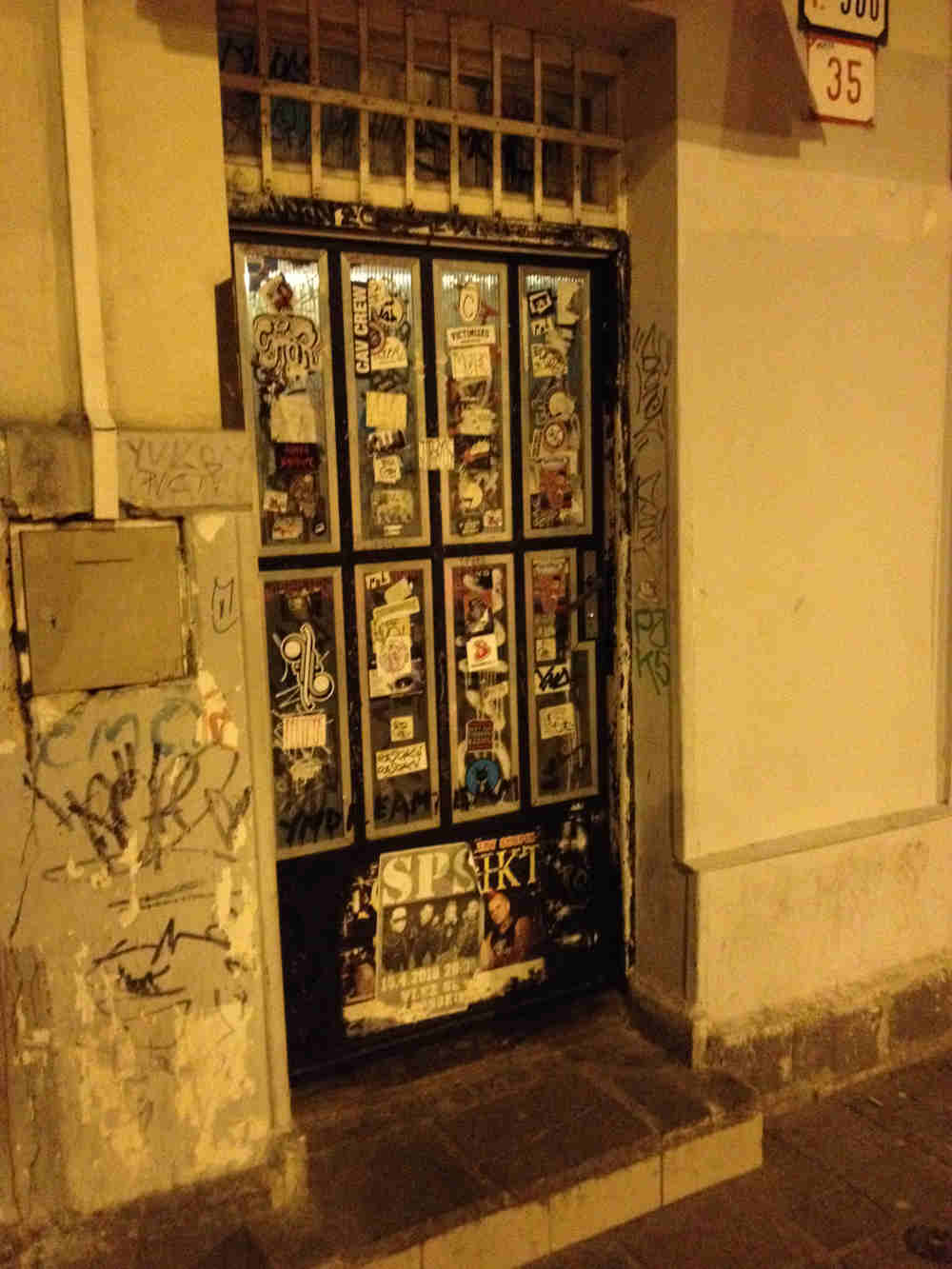China, October 2016
The Karakorum Highway (KKH for short) is said to be one of the highest and most beautiful roads in the world. It connects Kashgar in the far west of Xinjiang China, with Islamabad, the capital city of Pakistan, boasting one of the highest border crossings in the world over the Kunjerab Pass at a whopping 4700 meter altitude. We decided to try and hitchhike it.
We had a good start in Kashgar, walking off in the wrong direction, but at least it gave us a last glimpse of the cities’ >20-meter high Mao statue. We didn’t check, but it must be one of the tallest still standing statues of a former dictator to ever be erected. We couldn’t help but think the Uyghur might rather see a statue of Hitler in its place (see our previous blog entry), but they wouldn’t have any possibility to tear Mao down to begin with, as there was a small army of heavily armored police stationed right across.
We had our own mission on our minds though and turned around to head back into the right direction to the KKH. We didn’t have to wait long to catch our first rides, but there was a strong wind coming up and as we got further out into the countryside, it turned into a full-blown sand storm. At one point it was so extreme, that we couldn’t see more than 20 meters in front of us. We figured it would be impossible to get a ride in the midst of this storm, but when the first car doomed up, we were happily surprised to see it stop. We must have looked like bandits, with our faces covered up in our hoodies, scarves and sunglasses. It hadn’t scared the driver through, who had already picked up a couple before us: the first hitchhikers we had seen in China! With the four of us squeezed together in the back, we were relieved to escape the horizontally flying sand blasting across our face. Andrea and Aaron (their English names) were two friends on a trip through Xinjiang and were planning to go to Tashkurgan.
When we told them about our goal to visit Karakul Lake, Andrea and Aaron got excited to join us. We had fun ánd a surprising amount of success, hitchhiking in our group of four. First in the back of a water melon truck and then with the friendliest guy, who happened to have some friends who lived in the small village of Subaxcun next to the Karakul Lake: Tusunjan (Uyghur) and Kaule (Kyrgyz). They were working on a nearby project as electricians, but they had to work only one day per week. So most of the time the both of them were either sleeping or watching tv, which left them with little time to clean their house. They acted seemingly unimpressed by our surprise group visit and indifferently agreed to host us for the night. Tusunjan did seem rather impressed with Jeroen’s height though and when Jeroen answered he is almost 2 meters tall, Tusunjan turned to Linda with a big smile, raising his thumb, with Kaule nodding to Linda in approval.
We decided to check out the local shop to buy some food and while Andrea and Aaron were eying the instant noodle selection, we carefully put forward the suggestion to make a little stir-fry. When we grabbed some garlic, Andrea asked at us with big eyes: “you know how to prepare that?”, which we took as our cue to propose to do the cooking. We found Tusunjan and Kaule the way we left them, lying in their beds, snacking on some peanuts, with the tv blasting in the background. We took the loud slurping and smacking sounds that Andrea and Aaron were producing as a compliment for our Chinese style food (check out our film section for an impression).
With the coal oven burning hot and no real proper air ventilation, it felt a bit cramped with the six of us squeezed into the small single room. Half dazed by the warmth and the low oxygen, we tiredly positioned ourselves on the floor in the corner, next to the coal oven, half underneath the side table with the tv set. Unfortunately, Tusunjan and Kaule had a friend stop by who initiated a late night drinking session. With the tv ringing above our heads, the drunken cries from the vodka pounding men at our feet and our throats aching from the coal fumes on our left, we briefly considered to break out our tent and sleep in the cold, but with the temperature outside below zero we decided to grab some earplugs and stick it out.
We had fun exploring the lake the next morning, observing the peculiarities of the many yaks that populated the area (you can find a short clip in our film section). The lake provides a stunning view of the glaciated Muztagh Alta summit (7509 meters). Apparently, a Swedish explorer was the first to try and climb the mountain at the end of the 19th century on the back of a yak! Unfortunately, the yak died and with it the expedition. Those yaks can climb though, so we couldn’t help but wonder whether the yak would have made it without the fat Swede on his back…
Either way, we had to get a move on if we wanted to make it to Tashkurgan in time. So after a local breakfast of yak milk tea and bread at a neighboring family’s house we made our way back to the KKH. This time around, the four of us had to split as the first car that stopped had only space for two. After a quick round of “you first”, “no you first”, we hopped into the car and could once again gaze in amazement at the beautiful scenery unfold as we continued our journey further south. We shared our ride with two girls who had taken a private taxi from Kashgar to explore the area at the Tajik border. They were incredibly helpful to us, stopping cars along the way to find us a ride to Tashkurgan. Unfortunately with no success, but we managed to find a new ride quick enough. We even picked up yet another couple of Chinese hitchhikers along the way, apparently this part of the ancient Silk Route is a favored tourist destination for the Chinese.
When we rolled up in Tashkurgan, we were a little disappointed to see the only hostel in town closed. Luckily, we were quick enough to find a hotel that accepted non-Chinese citizens (not many do) and managed to negotiate a good price. Andrea and Aaron would join us there about two hours later. Tashkurgan functions as a border city with Pakistan, where you have to be cleared through customs before you can continue your journey. The city is mostly populated by Tajiks who are an Iranian people and don’t resemble the Uyghur or Han in their appearance. Their traditional clothing differs as well, with (some of) the women wearing beautifully long colored dresses and embroidered round hats with a scarf across and (some of) the men wearing traditional round black sheep skin hats. The men also greet each other in the most peculiar way: they kiss each other on the inside of the palms of the hand.
From Tashkurgan, it’s still more than 100km to the actual border, but hitchhiking is not allowed, so we had to take a bus to Sost, the next nearest town in Pakistan. When we left our hotel in the morning, we asked the manager for directions to the bus station. Outside, he spotted two Pakistani men, who immediately offered to escort us there. First, they wanted to have some breakfast though, assuring us that we would have plenty of time to get to the bus station. We were a little on edge, because we were leaving on a Friday, the border is closed during the weekend and our visa would expire on Sunday. So if we would miss the bus or if the bus would be fully booked, we wouldn’t be able to leave until Monday, at which point our visa would be expired. The younger of the two men reassured us though. While pointing at his friend, he told us in a very self-explanatory way: “this man is very old”. We waited for him to finish the rest of his sentence, but he already had. We guess “old” means wise in Pakistan, although his friend didn’t look any older than mid fifty, so we weren’t thát reassured. It turned out we had nothing to worry about though. The “old man” had clearly done this many times before, as he managed to always lead us to exactly the right spot in exactly the right moment. We moved completely stress-free through customs, with our guide securing us the best possible seats in the bus in the midst of stressed out Pakistani businessmen dragging and tossing around the Chinese merchandise they were transporting back to their home country.
From there, we could sit back and relax, while watching the undulating meadows and white mountain peaks glide past, as we climbed higher and higher to an ever more rugged and snow covered terrain. When we finally made it to the top of the Kunjerab Pass, the bus erupted in loud jubilations, with the businessmen scanting “Pakistan, Pakistan!”. The joyfulness didn’t last long though, as right in front of us, a minibus had slipped off the snow-covered tracks and had tumbled onto its side on a small plateau about two meters below. The businessmen quickly ran towards the vehicle. Some to assist the obviously shaken but unharmed women in getting out of their predicament, most to take a selfie with the flipped bus in the background. When everybody had calmed down from this sudden excitement, we resumed our trip down the same snowy road, which made our heart beat a little faster. Fortunately, the roads cleared up soon enough, so that we could enjoy the spectacular views of the Karakorum Range once more, boasting some of the highest mountains in the world.
In Sost, we were not able to get cash from any of the ATMs, but a local shopkeeper was willing to exchange our last Chinese Yuan for Pakistan Rupees. From here, we went further down the KKH to the nearby village Pasu, looking out through the window with a peaceful bliss from the warm afternoon sunlight caressing the long dry gently waving grass in the running hills, turning it into glistering sterns of fluid gold. The area carried a mystic beauty that instantly took away any worries we might have about our trip through Pakistan…
